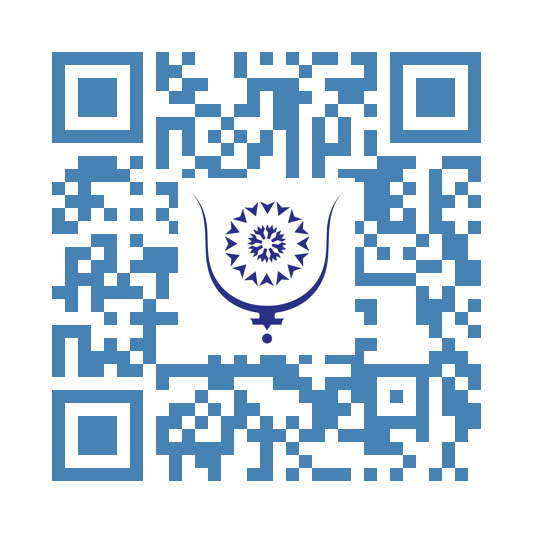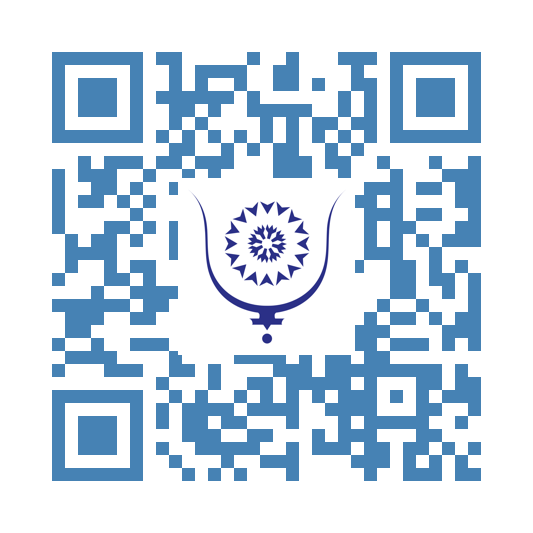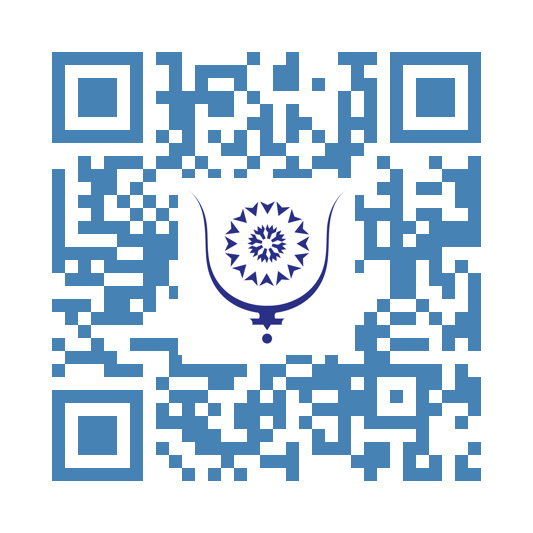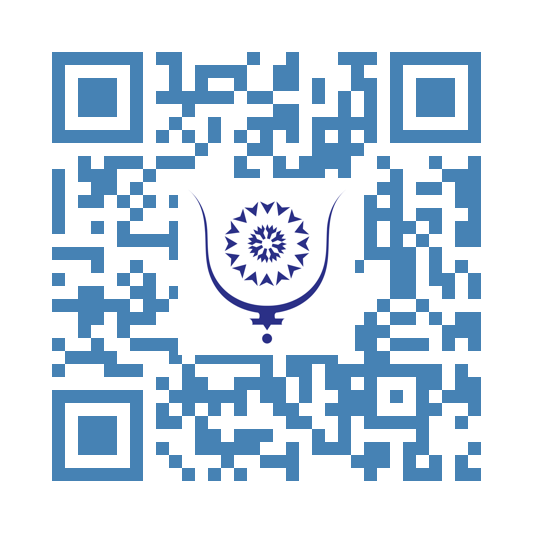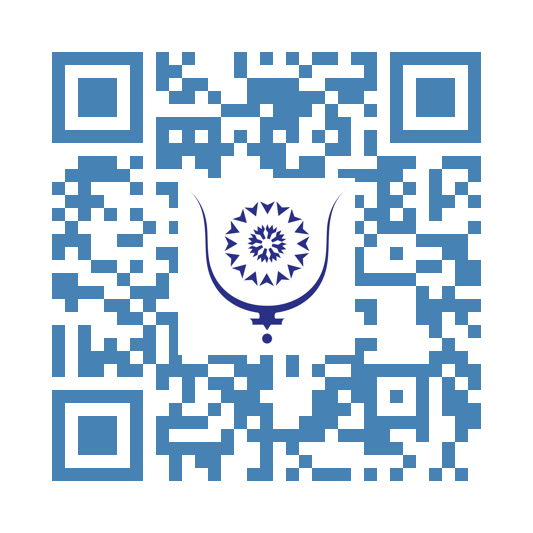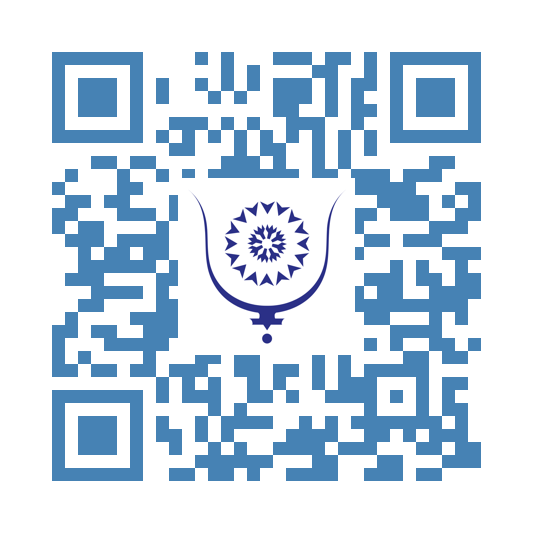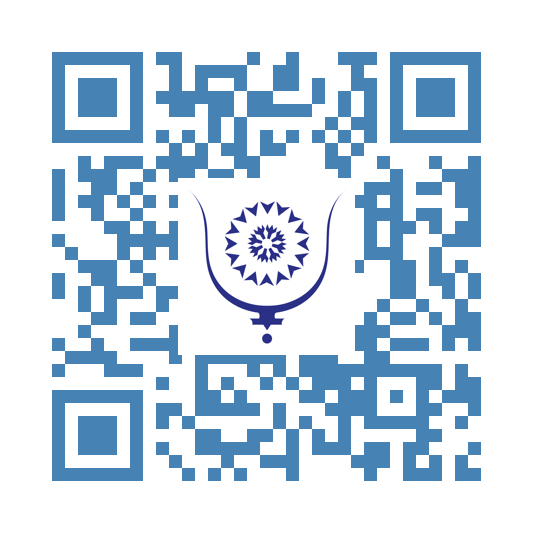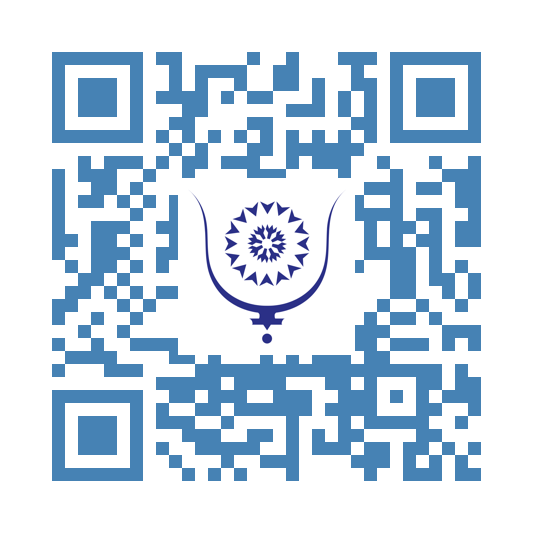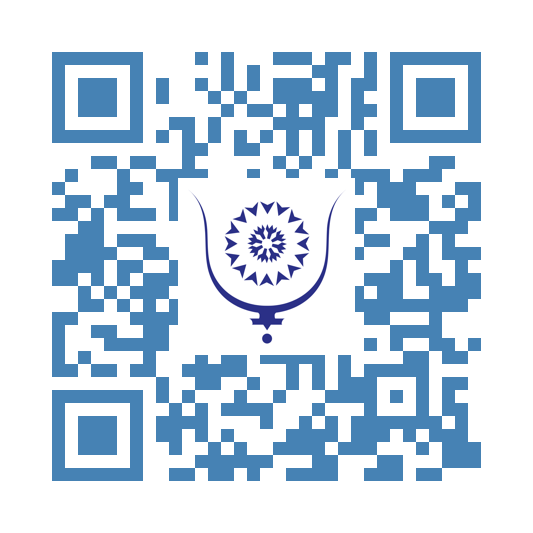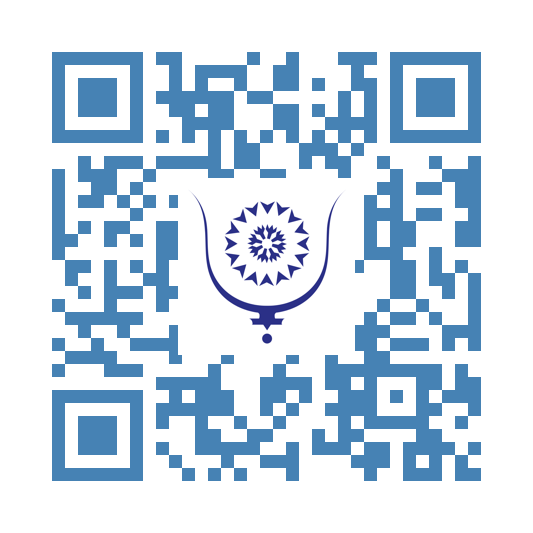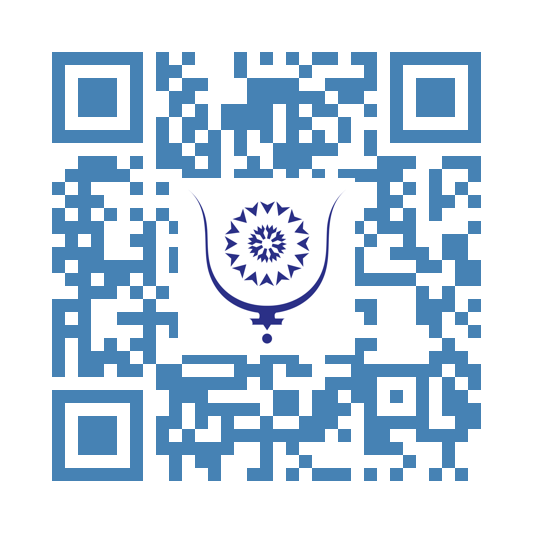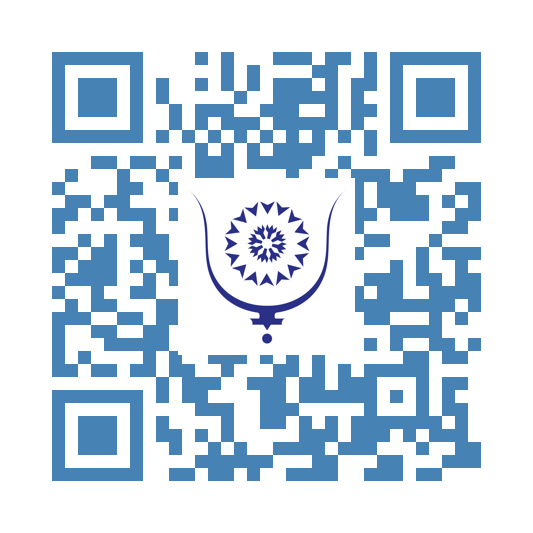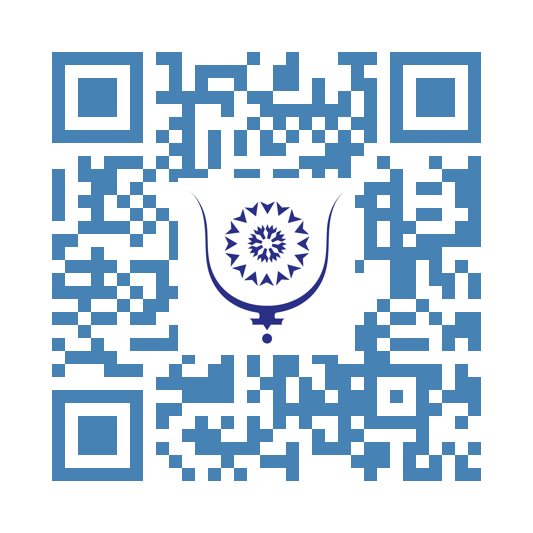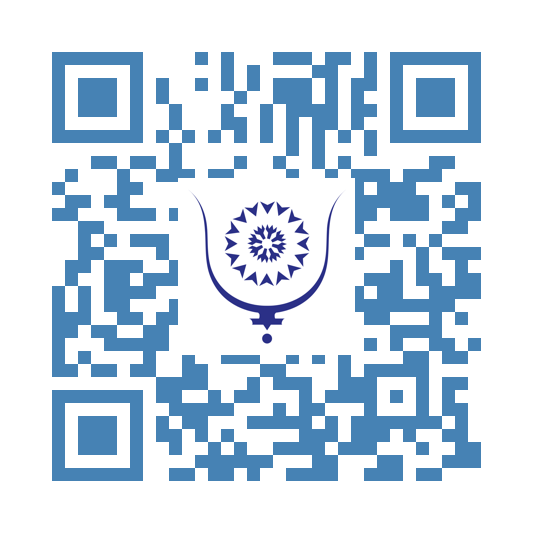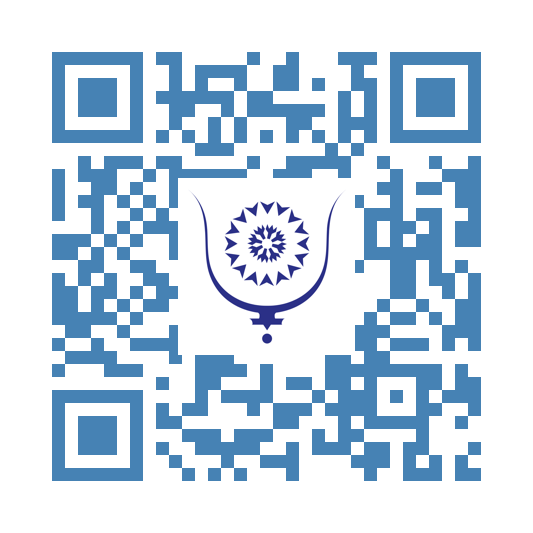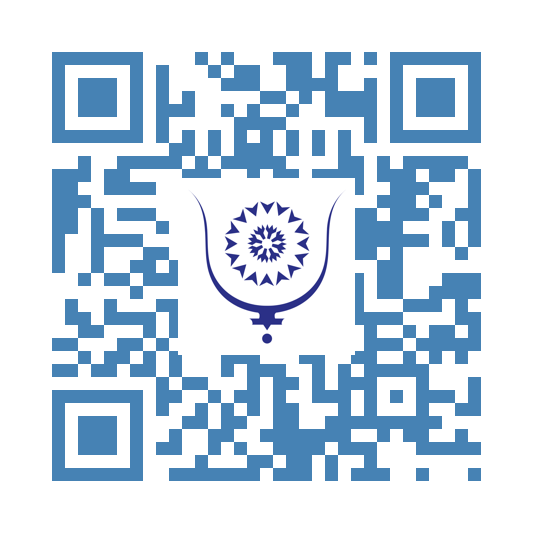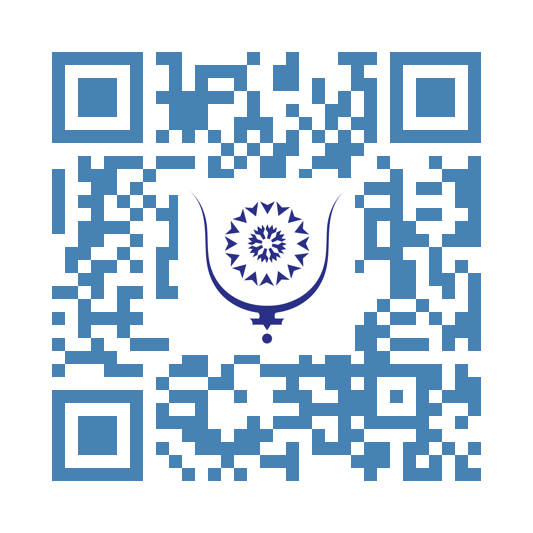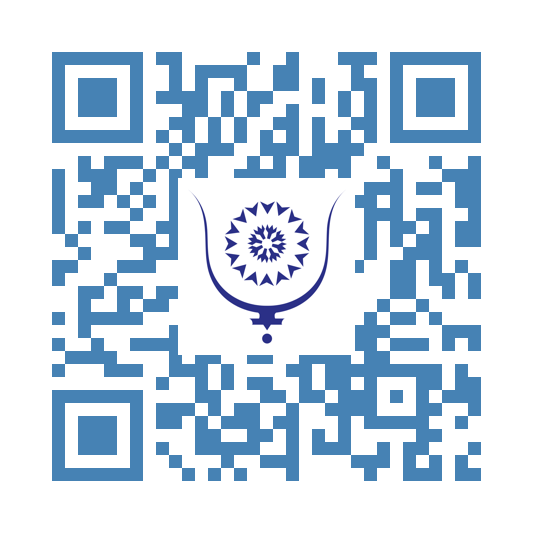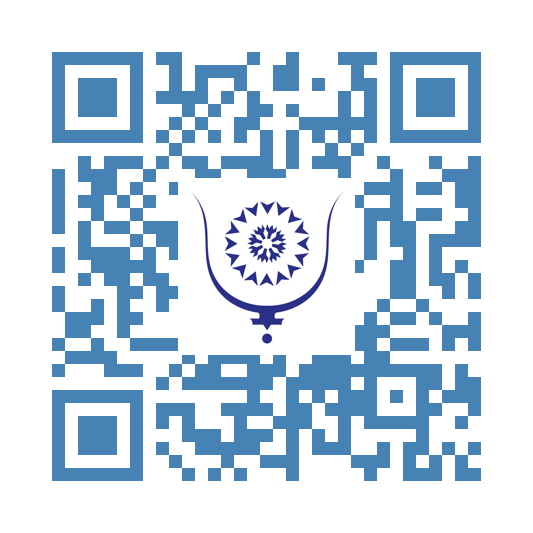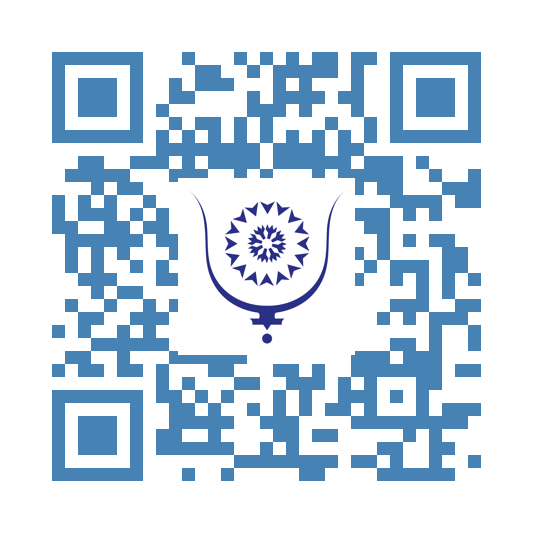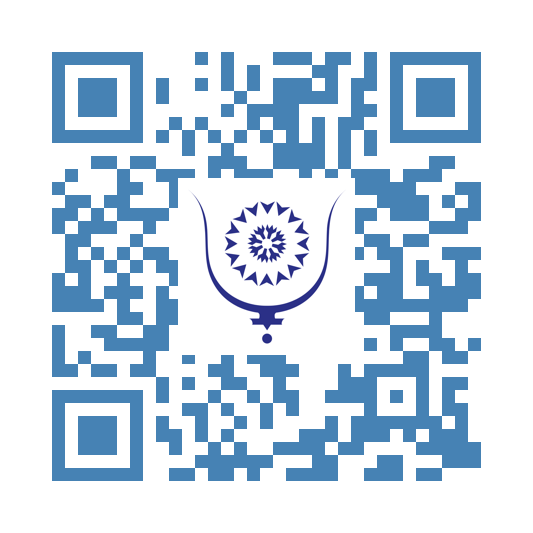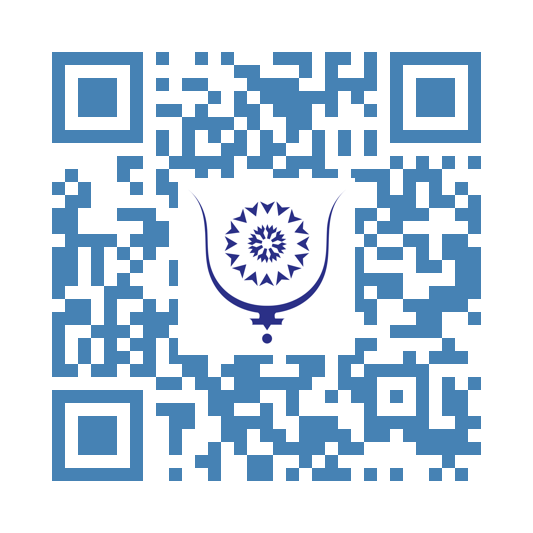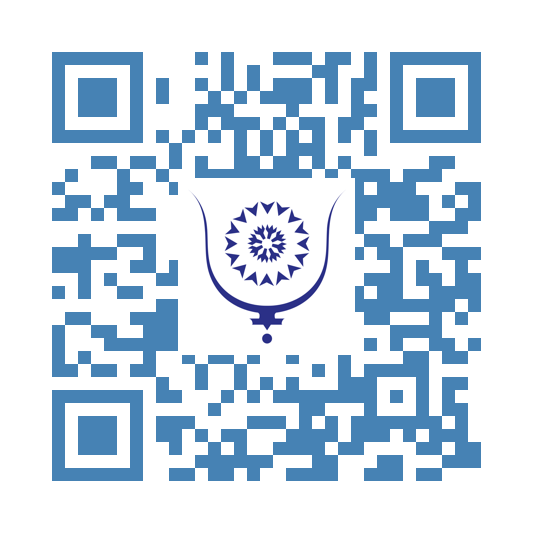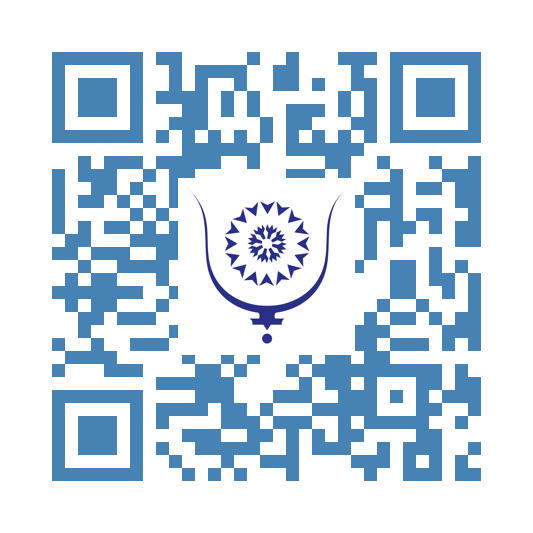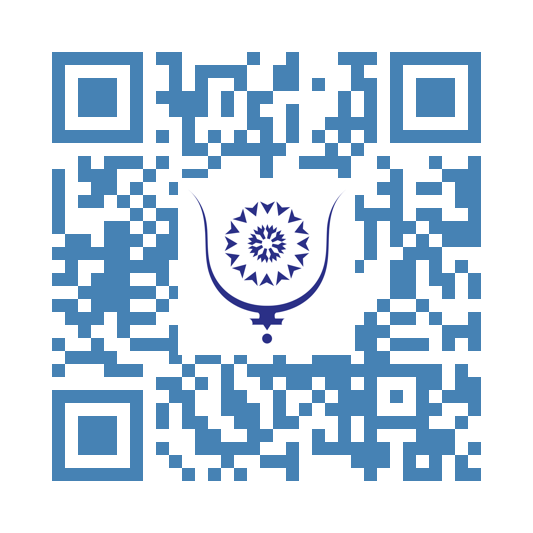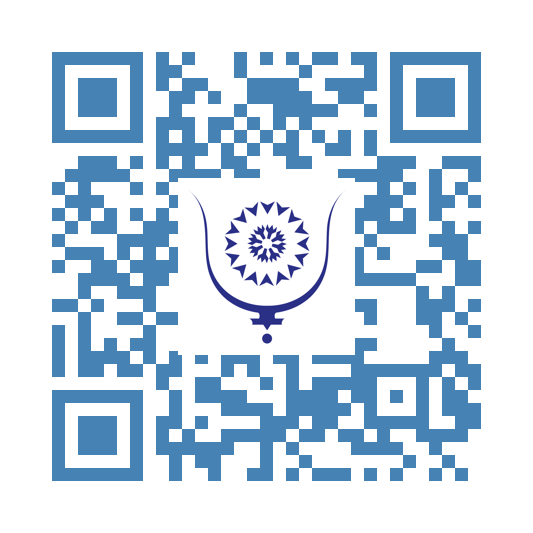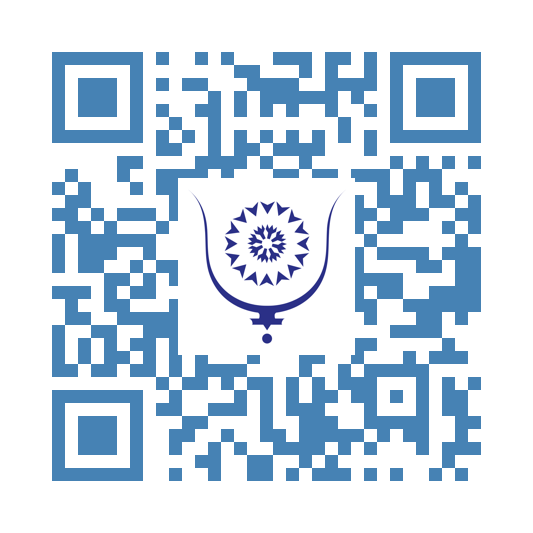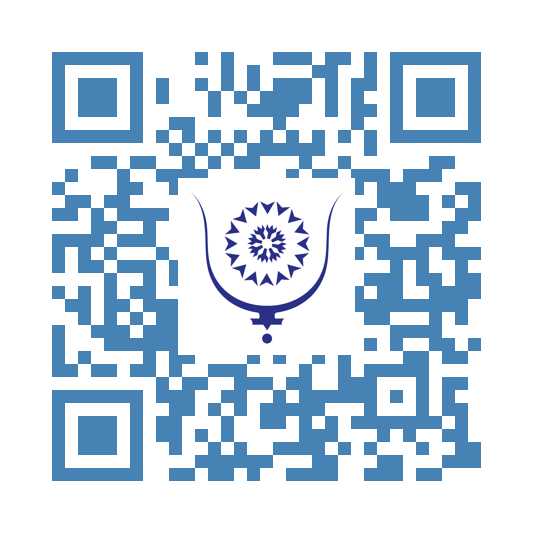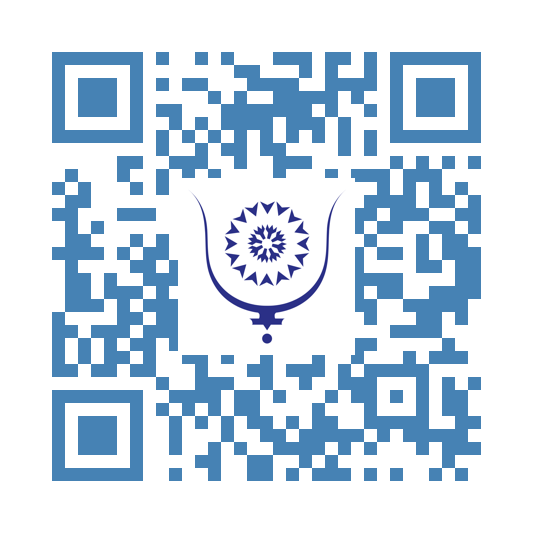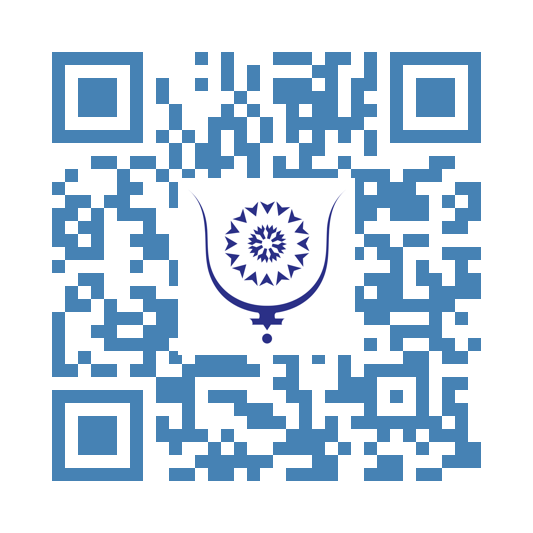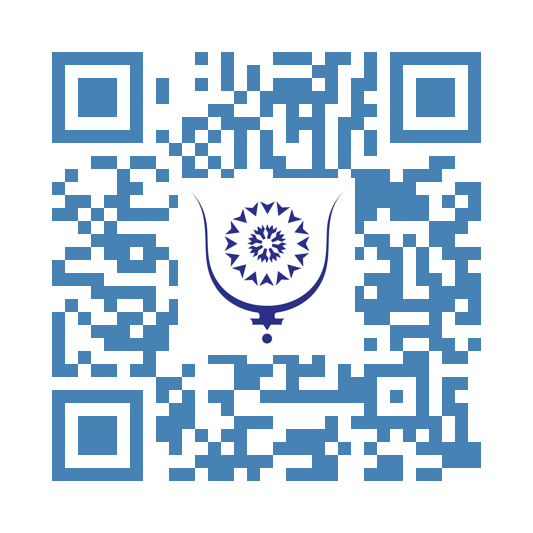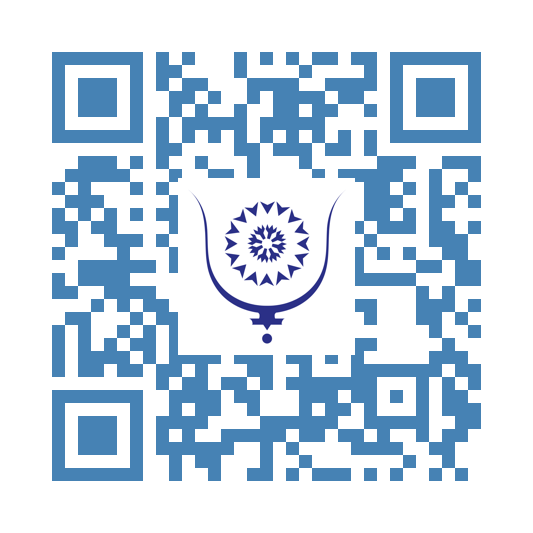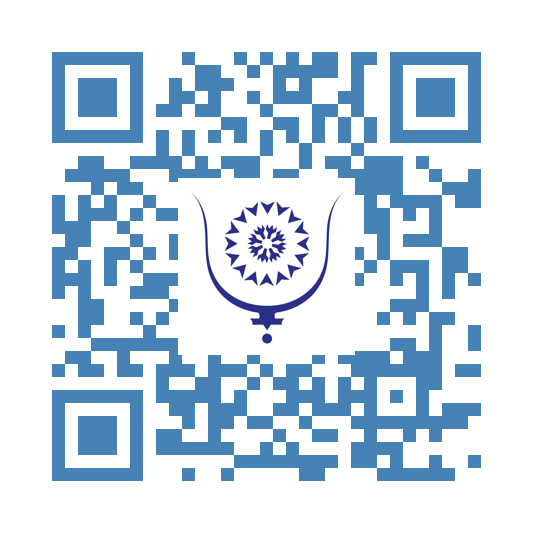Why Serious Writers Choose Bluwr for Exposure
Your writing gets a platform and an instant audience no algorithms holding you back. Make every story count and see your byline appear where it matters most.

Think Forward.
Morocco 2030: Football as a Geopolitical and Strategic Lever While Waiting for Other Sports Disciplines... 7535
The Kingdom of Morocco, through football, is today establishing itself as a major player in sports geopolitics. It clearly demonstrates its determination to carve out a prominent place on the international stage in this field. This vision comes from the highest levels of the State and is also shared by the Moroccan people, who have embraced this choice. This dynamic is notably illustrated by the co-hosting of the 2030 World Cup with Spain and Portugal, a historically significant event symbolizing a major political and diplomatic victory.
This co-organization of the 2030 World Cup alongside two European states is the result of a long, patient, and determined strategy. It stems from an enduring conviction that has never wavered. After five unsuccessful bids, the Kingdom managed to convince FIFA and its member federations, becoming the second African country to host the tournament after South Africa in 2010. In fact, aside from the political contingencies of the time, the global sympathy for Nelson Mandela, and the questionable practices of FIFA decision-makers then, South Africa would never have been able to host the World Cup before Morocco for obvious footballing reasons.
The Kingdom has nonetheless been rewarded for its patience, resilience, and conviction. It will host the centennial World Cup, an edition exceptional in every respect and designed under a cost-sharing logic. It will have a considerable economic and diplomatic impact, strengthening ties between Europe and Africa and highlighting football’s role in bringing peoples closer, as well as in the social and sporting development of the region. Never has Europe been so close and cooperative with the African continent—and vice versa. Morocco is organizing on behalf of an entire continent.
Football is a true soft power tool that Morocco wields to strengthen its diplomatic relations in Africa. Did His Majesty the King not order the Local Organizing Committee to include expertise from across the continent?
The Royal Moroccan Football Federation has long multiplied partnerships with African federations, providing financial and logistical support and inviting many countries to use the country’s numerous modern infrastructures for their training or competitions. This proactive and positive policy naturally consolidates Moroccan influence on the continent, in a context where the country seeks to counter the influence of other regional powers that do not look upon it favorably.
From a purely footballing standpoint, Morocco is gradually asserting itself as an African powerhouse. It wins or participates in all major continental finals with a steady rise in the performance of its national teams. This success is supported by massive investments in player development, with the construction of high-performance training centers such as the Mohammed VI Academy in Salé.
The Kingdom is also increasingly exporting players and coaches to leagues in Europe, the Middle East, and Africa. This contributes to strengthening its image and influence. For example, Jamal Selami recently qualified Jordan for the World Cup for the first time in its history, a team propelled by his compatriot Houcine Amouta.
Moreover, the Moroccan diaspora plays a key role: many players born or trained abroad enthusiastically choose to wear the Moroccan colors, proud and unashamed to represent their country of origin. This mobilization of diaspora talent is a strategic asset that enriches the national teams and enhances their reach.
Morocco therefore does not limit itself to mere sporting ambition in football. It conceives football as a vector of international influence, a territorial marketing lever, as evidenced by the strategic agreement “Morocco, Land of Football” signed between the FRMF and the Moroccan National Tourism Office. This alliance reflects the Kingdom’s desire to build a strong, inspiring image and attract enthusiasts and tourists from around the world. It is a continuation of the policy of building and strengthening the Morocco brand, which is increasingly asserting itself globally in the economic sphere. Morocco no longer hesitates to admit it is an industrial power asserting itself more and more every day.
This approach fits into a global geostrategic perspective where football is called upon to reinforce Morocco’s position on the African and international stage, assert its continental leadership, and support its diplomatic advances, notably on the sensitive issue of the southern provinces.
By using sport as a diplomatic and economic tool, Morocco aims to consolidate its alliances, extend its influence, and prepare a future where it occupies a central position in relations between Africa, Europe, and the world—and it makes no secret of this. Everyone today understands that to engage with Africa, especially on economic issues and certain political aspects, the Kingdom is indispensable.
The question now arises for other sports disciplines. In fact, this football policy could only be implemented and succeed thanks to the royal vision in this domain, understood by a federation that, before all others, corrected its course following the royal letter addressed to the world of sport in 2008. The FRMF has smartly set itself in motion, now reaping the first results of its commitment.
Unfortunately, other federations have remained in the shadows, mired in a certain mediocrity or even lethargy that makes them increasingly ineffective and criticized. Some, and not the least, are simply insignificant at the continental and global level, or have become so due to lack of foresight and competence, despite the available resources and the green light for sports in general.
Developing other disciplines could diversify the country’s sports soft power, strengthen its diplomatic ties, and better distribute the economic and cultural benefits of sporting events across the national territory. Diversification is precisely at the heart of the royal vision.
Meanwhile, Morocco is making football a major political asset, blending sport, diplomacy, and economic development to establish itself as an unavoidable player in sports geopolitics.
The 2030 World Cup is both a symbol and a catalyst of this ambitious strategy, which promises to reshape regional and international balances around a ball rounder than ever—while awaiting the awakening of other sports disciplines.
Blind love 7436
Blind love
To the one who looks at me and pretends not to see me
While she is the source of my sorrows and setbacks
Yet she confesses to others that she loves me who believes
Leaning on her balcony every evening
She doesn't care that I always be there at my perch Waiting for a signal from her, a hope
To the one who looks at me and pretends not to see me
While she is the source of my sorrows and my setbacks
In spite I keep drinking And drinking get drunk every night
Sitting in front of her window on the sidewalk
To the one who looks at me and pretends not to see me
While she is the source of my sorrows and my disappointments
I say that this story is over now
And that elsewhere I will go to see
Dr Bouchareb Fouad July 5, 2022 Inspired by a piece of Andalusian music
All rights are reserved
Mauritania Facing Security, Diplomatic, and Geopolitical Recomposition Challenges in the Sahel.. 7679
After four years of intervention, the Russian paramilitary group Wagner officially announced its withdrawal from Mali in June 2025. It had been active in the region since 2021. This departure occurs in a context marked by a resurgence of jihadist attacks weakening Malian and regional stability.
Wagner’s departure does not signify a Russian disengagement, as its missions are being taken over by a new paramilitary organization, the Africa Corps, directly controlled by the Russian Ministry of Defense. This group, born after the failed coup attempt by former Wagner leaders in 2023, continues Russia’s strategy of influence in Africa, notably in what is declared to be the training of Malian forces to face the rising terrorist threats.
This transition illustrates the complexity of the security context in the Sahel, where Wagner’s relative failure to stabilize Mali and contain Tuareg and jihadist armed groups forces Moscow to readjust its methods while maintaining its strategic influence. This new situation raises serious questions about the real capacity to contain terrorism in the region, especially at Mali’s border with Mauritania.
Meanwhile, the Polisario Front, a separatist movement, is increasingly associated with terrorist activities. In Spain, a militant affiliated with the Polisario was arrested for preparing terrorist acts against Morocco, with evidence of incitement to jihadism and acquisition of explosive materials.
This radicalization fits into a dynamic where the Polisario cooperates more closely with Islamist groups, notably benefiting from the support of Iran and its proxies including Hezbollah. Well-documented longstanding links exist between the Polisario and terrorist groups in the Sahel, such as the Islamic State in the Greater Sahara, whose founders were former Polisario fighters.
This collusion manifests through logistical support, arms transfers, and increased militarization, including the use of suicide drones supplied by Iran.
These facts reinforce the perception of the Polisario not only as a separatist actor but also as a vector of instability and terrorism in the region.
At the same time, Morocco has recorded numerous diplomatic breakthroughs and growing international pressure to formalize Moroccan sovereignty over the Western Sahara provinces.
In 2024, Morocco achieved several major victories in the international recognition of its sovereignty over its southern provinces. More than 116 countries, including powers like France, now support the Moroccan autonomy plan as the only viable solution to the conflict. This position was recently shared by the United Kingdom following the United States. Influential African countries such as Côte d'Ivoire and, more recently, Ghana have done the same. The fresh stance of Zuma’s party in South Africa further confirms this evolution.
Morocco’s diplomatic progress relies on skilled international relations management and active engagement in regional security, notably in the Sahel. The Kingdom’s tact is evident as it avoids embarrassing its southern neighbor Mauritania, which has long recognized the so-called RASD puppet entity.
It is also important to recall the U.S. intention to classify the Polisario Front as a terrorist organization, a measure supported by analyses documenting its links with Hezbollah, the PKK, Iran’s Islamic Revolutionary Guard Corps, Cuba, Venezuela, and other states unfriendly to the U.S. This classification aims to reveal the true nature of the Polisario.
In this context, Mauritania finds itself in turmoil. Things have moved too fast. The comfort it once enjoyed is gone. The conjunction of these developments forces the country’s authorities to rethink their political positioning.
Faced with the recurring fragility caused by the Polisario, which hinders its development and threatens its stability, and observing Algeria’s inability to move beyond Boumediene’s legacy to ensure effective security, Mauritania is inevitably pushed toward rapprochement with Morocco.
Morocco is perceived as the only actor capable of guaranteeing lasting security in the region, especially against rising terrorist threats and current geopolitical challenges. Some Mauritanian publications already address this question very directly.
This shows that Mauritanian decision-makers are indeed embracing this paradigm shift. Recent movements by the Mauritanian army align with this trend, especially as some Polisario cadres no longer hesitate to threaten Mauritania, which they label as a traitor.
This tension further complicates Mauritania’s capacity to secure its borders, a young country whose resources remain very limited given the vastness of its borders, notably with Mali and Algeria.
In this environment, Algeria, a blind and staunch supporter of the Polisario, today appears more trapped in rhetoric without real capacity for action, which weakens its regional position. Mauritania seems to have understood this for some time, though perhaps not openly.
Conversely, Morocco, strengthened by its diplomatic successes and proven commitment to counterterrorism, appears as an indispensable partner for Mauritania in its quest for stability and prosperity.
It would therefore not be surprising to see Mauritania in the very near future withdraw its recognition of the so-called RASD puppet entity or at least move away from what it has so far called a positive neutrality.
In fact, Mauritania has already distanced itself somewhat from the separatists, which does not please Algeria, which is losing influence.
The withdrawal of Wagner from Mali, the radicalization of the Polisario which seems overwhelmed, Morocco’s diplomatic successes, and the likely imminent designation of the Polisario as a terrorist organization by the U.S. clearly redraw the geopolitical map of the Sahel and the Maghreb.
Mauritania is probably preparing for this and even taking the lead. In this shifting context, it is pushed toward a natural strategic realignment with Morocco, the only actor capable of offering a credible security alternative against terrorist threats and development challenges.
This repositioning marks a major step in the reshaping of regional alliances, with profound implications for the future stability of the Sahel and the reconfiguration of North Africa.
His Majesty King Mohammed VI: Heir to a Tradition, Architect of Sovereign Modernity 7428
Long before the major transformations of the 1920s, Morocco experienced significant attempts at modernization under the reign of Hassan I (1873-1894).
A visionary Sultan, Hassan I undertook reforms of the administration, strengthened the army, and developed infrastructure, notably roads and communications. His efforts encountered a conservative internal context, marked by resistance from the fouqahas (Islamic scholars) and elites attached to traditional structures. He also faced increasing pressure from European powers seeking to establish themselves in Morocco. These dual obstacles limited the scope of the reforms but nevertheless laid the foundations for gradual modernization.
Before him, Sidi Mohammed ben Abdallah, an enlightened 18th-century Sultan, had already played a major role in opening Morocco to the world. He notably founded and developed the port of Essaouira (then Mogador) in 1765, conceived as a strategic commercial hub to control foreign trade. Thanks to its geographic position and infrastructure, Essaouira quickly became an essential crossroads for exchanges between Sub-Saharan Africa, Europe, and the Mediterranean, thereby strengthening the kingdom’s economic and diplomatic ties.
Other sovereigns continued this dynamic. Moulay Abdelaziz (1894-1908) pursued certain military and administrative reforms despite increasing instability. Under the French protectorate, Moulay Youssef (1912-1927) had to navigate colonial domination while trying to preserve some Moroccan sovereignty.
Ascending the throne in 1927 at only 19 years old, Mohammed V became a symbol of Moroccan resistance against the French protectorate. Rejecting colonial domination, he supported the nationalist movement, notably during his historic speech in Tangier in 1947, where he called for Moroccan unity and independence. Exiled from 1953 to 1955, his triumphant return marked the beginning of the end of the protectorate. In 1956, he proclaimed independence and laid the foundations of a sovereign Morocco. He then engaged in building a modern state by reforming institutions, unifying the territory, developing education, and initiating economic modernization, creating the Royal Armed Forces and other security bodies while affirming national cultural identity.
Son of Mohammed V, Hassan II (1961-1999) consolidated the Moroccan state by establishing a constitutional monarchy and developing essential infrastructure. He skillfully combined tradition and modernity, strengthening national sovereignty while opening the country to foreign investment and international exchanges. Under his reign, Morocco made major advances in economic, social, and cultural fields, laying the groundwork for sustainable modernization and preparing the terrain for current transformations. Hassan II is remembered for gradually recovering the territorial integrity of the Kingdom in a difficult, even hostile, internal and international context.
Under Mohammed VI, Morocco is undergoing a profound transformation, comparable in scale to that of the 1920s but within a sovereign and globalized context. His reign, marked by a clear vision and firm will, combines respect for traditions with openness to modernity. The country is investing massively in transport infrastructure: roads, high-speed trains, airports, and public and private facilities throughout the territory.
Integration with Western economies has strengthened, making Morocco a preferred destination for foreign direct investment, attracting billions of dollars annually. Flagship projects, especially in preparation for the 2030 World Cup, are stimulating the development of sports, tourism, and cultural infrastructure, affirming the country’s international influence.
At the same time, social and economic modernization is underway, with initiatives to improve education, health, innovation, and sustainable development, positioning Morocco within a global and modern dynamic. The country has simply tripled its GDP in less than twenty years.
All this reflects continuity and renewal. Morocco is, in fact, in perpetual reinvention.
The parallel between the major transformations of the 1920s and the era of Mohammed VI reveals a Morocco capable of constant reinvention. While the metamorphosis of the 1920s was dictated by a colonial context, today’s transformation is the fruit of a sovereign ambition, focused on balanced, inclusive, and sustainable development. It embodies the will of a sovereign with a multilateral vision. No domain is left aside or forgotten.
The great projects of yesterday and today testify to an even stronger and more determined energy for transformation, with different goals: to move from a Morocco under tutelage, dependent and powerless in the face of circumstances, to a major player on the international stage, capable of attracting and cooperating with the world and building its future with confidence.
Today, Morocco fits into a long tradition of historical metamorphoses. Each era has shaped a dynamic country, attempting modernity and ambitions, sometimes successful, sometimes aborted. Yet it has remained faithful to its millennial history and cultural heritage. Today it is rising, modernizing, and asserting itself as an emerging country on which one can rely.
The Kingdom of Mohammed VI is thus ready to meet the challenges of the 21st century with boldness and determination, armed this time with institutions, clear and powerful visions and strategies. The royal will thus guides the country toward genuine development benefiting all, an indispensable geostrategic position, sustainable economic breakthroughs, a reliable political system, and truly irreversible progress.
The Greek Magical Papyri 7594
The Greek Magical Papyri (Latin: Papyri Graecae Magicae, abbreviated PGM) represent one of the most important and enigmatic bodies of esoteric literature from the ancient world. Comprising a collection of spells, rituals, hymns, and invocations compiled between the 2nd century BCE and the 5th century CE, these papyri offer an extraordinary glimpse into the syncretic spiritual practices of Greco-Roman Egypt. Preserved mainly on fragile scrolls and manuscripts written in Greek (with occasional Coptic, Demotic, and even Hebrew terms), the PGM bridge the realms of religion, folk magic, and mystery traditions. They are not only historical artifacts but also bear witness to a time when the boundaries between magic, religion, and science were fluid and deeply interconnected.
The texts were discovered primarily in Egypt, particularly in the city of Thebes, and made their way to European collections during the 19th century. They were finally compiled and published in the early 20th century, most notably by Karl Preisendanz, and later translated into English by scholars such as Hans Dieter Betz. The rituals recorded in the PGM range from practical spells—such as those for healing, protection, love, and curse-breaking—to theurgic operations intended to invoke divine beings and achieve ecstatic union with the cosmos.
One of the most distinctive features of the Greek Magical Papyri is their religious syncretism. The practitioner calls upon gods and spirits from various traditions: Greek deities like Hermes, Hekate, and Apollo appear alongside Egyptian gods such as Thoth and Isis, and even Jewish and Gnostic elements—like references to Iao (YHWH) or archons—are present. This reflects the religious pluralism of Hellenistic and Roman Egypt, where practitioners saw divine power not as confined to one pantheon, but as accessible through many forms, names, and languages. In this sense, the papyri reflect a universalist approach to the sacred, a distinctive characteristic of late antiquity’s mystery cults and Hermeticism.
The goals of the rituals varied widely. Some texts focus on personal gain—attracting lovers, gaining favor from rulers, or acquiring wealth. Others describe elaborate invocations of daemons or spirits, often accompanied by complex visualizations, sacred names (called voces magicae), and symbolic gestures. One famous category of these rituals is the “Headless Rite”, an invocation of a cosmic spirit that transcends the gods themselves. The magician declares mastery over heaven and earth and seeks personal transformation and empowerment through divine contact. This ritual later influenced Western ceremonial magic, especially in the Hermetic Order of the Golden Dawn and Thelemic traditions.
The PGM also contain magical alphabets, sigils, amulets, and magical words—often long, untranslatable sequences of syllables intended to carry vibrational power. These expressions may represent remnants of older oral traditions or attempts to imitate divine or non-human speech. The importance of divine names—often in long, hybrid strings—is central, reflecting the ancient belief that knowing the true name of a deity conferred control or communion with that entity.
Rather than being fringe documents, the Greek Magical Papyri reveal that magic was integrated into daily life and spiritual aspiration in antiquity. Priests, philosophers, and laypersons alike sought access to divine power through these rites. Far from the later Christian demonization of magic, the practitioners of these texts viewed themselves as mystai—seekers of truth and harmony with the cosmos.
In modern times, the PGM have become an essential source for scholars of religion, anthropology, and occultism. They offer direct insight into ancient ritual techniques, influencing contemporary esoteric traditions such as Hermeticism, Neopaganism, and Chaos Magic. Moreover, they have helped to reconstruct ancient mystery practices that had otherwise been lost to time.
In conclusion, the Greek Magical Papyri stand as a testament to the richness, complexity, and spiritual depth of ancient magical traditions. They are not merely spells or superstitions, but part of a larger sacred worldview in which humanity, the gods, and the cosmos were intimately connected. In these texts, we hear the voices of ancient magicians calling out to the stars—not just for power, but for divine communion and wisdom.
Moroccan cybersecurity dangerously undermined by successive attacks 7563
Since April 2025, Morocco has been facing a series of major cyberattacks claimed by a collective of hackers allegedly Algerian, named "JabaRoot DZ." These cyberattacks have targeted key economic and administrative institutions, notably the Ministry of Employment, the National Social Security Fund (CNSS), and more recently the Ministry of Justice, as well as platforms related to land registry and property conservation.
What is clear, let’s say it outright, is that Algeria does not possess the technological power or expertise for such operations. It is highly likely that its services call upon "skills," notably from Eastern Europe, to attack the Kingdom’s interests in its ongoing global war against its "classic enemy." If this hypothesis proves true, the question would then be who else might have the hacked information and for what purpose.
The first intrusion, which occurred in early April 2025, began with the hacking of the Ministry of Employment’s website and quickly extended to the CNSS database. This attack led to the leak of thousands of sensitive documents, exposing the personal information of nearly two million employees and the administrative data of about 500,000 Moroccan companies. Among the leaked data were pay slips detailing names, social security numbers, salaries, and sometimes identity card numbers of very important personalities and leaders of Royal Air Maroc, Attijariwafa Bank, Banque Centrale Populaire, and the Mohammed VI Investment Fund.
Less than two months later, in June 2025, JabaRoot DZ claimed a new "large-scale" cyberattack against the National Agency for Land Conservation, Cadastre, and Cartography (ANCFCC). Although the ANCFCC denied any direct intrusion into its servers, it was revealed that the vulnerability originated from an electronic platform used by some notary offices for archiving land documents. The hackers claim to have obtained about 4 terabytes of data, including millions of land titles, contractual documents, copies of identity cards, passports, as well as banking documents and information concerning high-ranking officials and public figures. This leak led to the temporary shutdown of the platform by the ANCFCC for security reasons.
The hackers justify these attacks as retaliation for alleged Moroccan hacking attempts against Algerian institutions, notably the Twitter account of the Algerian Press Agency (APS). They also threatened further actions in case of future attacks against Algerian interests. These events occur in the context of geopolitical tensions between Morocco and Algeria, exacerbated by recent developments related to the Sahara issue and regional rivalries; Morocco has been recording victory after victory at a rapid pace. Algeria, in its official and unofficial media, no longer hides and even implicitly claims responsibility for the hacking, ignoring that this amounts to a form of state terrorism.
These cyberattacks have had serious consequences: they have eroded citizens’ trust in digital public services, increased the risks of identity theft and banking fraud, and damaged the reputation of the affected companies. The Moroccan government has condemned these acts as "criminal" and announced measures to strengthen cybersecurity while launching internal investigations.
The series of attacks especially highlights major vulnerabilities in the cybersecurity of Moroccan institutions. The massive centralization of sensitive data on single platforms and the creation of junctions between multiple actors and platforms facilitate things for citizens and institutions in the context of digitalization, but also make it easier for hackers to gain massive access in case of a breach. It is therefore crucial to thoroughly and promptly review the national data protection strategy.
To better distribute its data and strengthen its security, Morocco could adopt several complementary strategies, relying notably on the 2030 National Cybersecurity Strategy and international best practices. It should likely avoid excessive centralization by distributing sensitive data across multiple secure systems, segment networks to limit lateral movements by hackers, and use data transmission techniques through several distinct channels to reduce the risk of simultaneous theft.
Morocco must also integrate decentralized cybersecurity solutions based on blockchain and collective intelligence, establish a national sovereign cloud with local hosting and end-to-end encryption guaranteeing the protection of critical information.
Moreover, the country should develop an agile and adapted legal framework, build a national pool of qualified cybersecurity professionals through specialized curricula and certifications, and establish a high-performance Security Operations Center combining advanced detection tools and local teams capable of managing threats specific to the Moroccan context. A higher cybersecurity school, where carefully selected students—true specialists—would be trained, could be a major strategic advance guaranteeing both competence and independence in this field.
Faced with rising cyber threats, it is urgent for Morocco to adopt a proactive and innovative cybersecurity policy based on a decentralized technical architecture.
Strengthening regional and international cooperation is not a luxury here. The real-time exchange of critical information is crucial; as is encouraging public-private collaboration through threat intelligence-sharing platforms to anticipate and respond quickly to incidents.
Today, it is clear that many claim to master the issue, offering services that will soon expose their limits and incompetence. Administrations and companies must be very cautious before engaging or hiring skills in this very sensitive domain.
This sphere relies on agile governance, the development of human skills, and active cooperation at national and international levels. An integrated approach is essential to build a resilient, sovereign cyberspace capable of supporting the country’s ambitious digital transformation while effectively protecting its security, institutions, citizens, and economy.
The Polisario Front Confronted with Increasing Accusations: Moving Towards Being Designated as a Terrorist Organization 8020
For several years now, the Polisario Front, a separatist movement supported and armed, as everyone knows, by Algeria, which has provided it with an entire territory in the Tindouf area, has been at the center of a growing international controversy. In the United States, Japan, and Europe, voices are rising to have this group officially classified as a terrorist organization. This shift is based on tangible evidence of its links with actors qualified as terrorists, its involvement in violent actions, but also on a network of international alliances that go beyond the regional framework.
While Algeria, Iran, and Hezbollah are often cited as the main supporters of the Polisario, as well as South Africa, Cuba has also played a historic and decisive role in the military and logistical training of separatist fighters. As early as 1977, under the impetus of Fidel Castro and at the request of Algeria, a tripartite military agreement was signed between Cuba, Algeria, and the Polisario, paving the way for intensive cooperation.
This agreement allowed the sending of many separatist fighters to Cuba to receive specialized military training. Dedicated military schools were created on the island, where Polisario recruits were trained in guerrilla tactics, special operations, and military logistics. A Cuban delegation even went to Tindouf in 1988 to study Moroccan defenses and help develop strategies to breach the defense wall erected by the Kingdom.
Cuba also provided naval logistical support, notably in the waters near the Canary Islands, where Cuban ships were involved in operations to facilitate Polisario infiltrations. Between 1975 and 1991, Cuba delivered to the Polisario a significant arsenal including assault rifles, mortars, rocket launchers, and ammunition, thus strengthening its military capabilities.
Even after the 1991 ceasefire, Cuba maintained its support, continuing to train warriors especially in special operations. The last known class trained in Cuba dates back to 2003. More recently, six-month training courses have been given to groups of about forty separatists, focused on special forces tactics.
Moreover, for a long period, damning testimonies report the kidnapping of children from the Tindouf camps, sometimes as young as 9 years old, to send them to Cuba on a "youth island" under high military surveillance. They undergo intensive military training mixed with strong political indoctrination. These children, isolated from their families, are trained to become soldiers in the service of the Polisario, under conditions denounced as inhumane by witnesses and former detainees.
Some recent signals suggest a possible repositioning of Havana. Indeed, at the 2019 Non-Aligned Movement summit, Cuban President Miguel Díaz-Canel omitted any reference to the Polisario, marking a break with the tradition of support displayed by Fidel and Raúl Castro. This evolution could reflect a diplomatic realignment, notably after the resumption of diplomatic relations between Morocco and Cuba in 2017, relations broken for nearly 37 years due to Cuban support for the Polisario. However, to date, the aforementioned tripartite agreement has not yet been repealed.
Cuba's role is part of a larger network of Polisario alliances. Algeria, the main political and military supporter, continues to arm and shelter the movement. Iran, through Hezbollah, provides military and logistical support, notably also training fighters and delivering sophisticated weapons. This is well documented.
There are also hundreds of Polisario mercenaries captured in Syria, where they operated alongside Assad's army, reinforcing the image of a group involved in international terrorist conflicts.
On the ground, the Polisario is also accused of violence against civilians in southern Morocco. The missiles launched against the city of Smara bear witness to this, in addition to the blockage of the strategic Guerguerat passage. The sequestration of Sahrawi populations in the Tindouf camps, where it refuses, with Algerian support, any official census, is another proof of the true nature of the movement.
Faced with these elements, several American, European, and Asian political leaders advocate for the Polisario Front to be quickly listed as a terrorist organization. American Congressman Joe Wilson has proposed a bill to this effect, denouncing the use of the Polisario by Algeria and its accomplices to destabilize the Kingdom of Morocco, a long-standing strategic ally of the United States in the region.
This eminent designation would deal a major blow to Algeria, which seems tireless in supporting the Polisario for nearly 50 years, while it simply costs the country development. It would further strengthen Morocco's position on the international stage, notably after the American recognition in 2020 of Moroccan sovereignty over its southern provinces, that of Spain, France, the recent one of the United Kingdom, and many other African and Latin American countries.
The historical, military, and educational support of Cuba, combined with the role played by Algeria, Iran, and Hezbollah, places the Polisario in a network of actors with manifest destabilizing and terrorist activities. The rise in calls for its classification as a terrorist organization fits into a logic of regional and international security, requiring a coordinated response to restore stability in North Africa, the Sahel, and beyond.
This page must be quickly turned for the good of the populations of the entire region
A Major Geopolitical Transformation in the Middle East 7885
The Middle East is undergoing a major geopolitical transformation, marked by a strategic realignment between Israel, the United States, and the Gulf powers. These latter, long marginalized from traditional alliances or subjected to them, are now asserting themselves as indispensable actors on the political, economic, and military stage, reshaping balances once considered historic and immutable.
Since its creation in 1948, Israel has been the main Western ally in the Middle East, notably of the United States, which initially opposed its establishment, in a region marked by recurring conflicts. Its expansionist and influential policies, supported by Washington, have long crystallized tensions with several Arab countries and armed groups. However, this belligerent stance now seems contested, both by its neighbors and some of its traditional allies. In any case, it is widely disapproved of and even condemned by civil society everywhere. This cannot last.
The most notable evolution in the region has come from the Gulf monarchies. After decades of hostility, they initiated a historic rapprochement with Israel, formalized by the Abraham Accords in 2020, under American impetus. These accords, signed notably by the United Arab Emirates and Bahrain, opened the way to strengthened cooperation, especially against Iranian influence, while fostering unprecedented economic and technological exchanges. The monarchies that did not sign these accords also have no qualms about dealing with Israel. Strong relations are also often mentioned between the Israeli state and Turkey, especially since it has been governed by Erdogan, a champion of Islamism.
In this rapidly changing context, the United States has gradually reoriented its regional policy, focusing more on the Gulf monarchies, which offer political stability, financial power, and strategic positioning. The American military presence in the region, notably at the Al-Udeid base in Qatar, illustrates this new reality. During the 2025 American tour of the Middle East, nearly two trillion dollars in investments were announced, particularly in defense, technology, and artificial intelligence sectors.
At the same time, Washington seems to adopt a more nuanced stance towards Israel, especially in the framework of negotiations with Iran, reflecting a diversification of regional alliances. Despite its military weight, Israel is gradually losing its exclusive influence, increasingly perceived as a source of tension. The current policies of Netanyahu’s cabinet, leading to a near-genocide in Gaza, do not help matters.
Unlike previous decades, Arab countries, especially those in the Gulf, no longer systematically respond to Israeli provocations with force. Current leaders favor a pragmatic approach, now distinguishing the Palestinian cause from the actions of armed groups like Hamas. This evolution marks a turning point compared to the belligerent attitudes of past military regimes, which over time became de facto allies of the Zionist cause. Hassan II, a visionary, once said on this subject, "Hatred of Israel and the Jew is the most powerful aphrodisiac in the Arab-Muslim world."
The Gulf monarchies, long proponents of a moderate discourse favorable to dialogue, are now imposing themselves as regional models of stability and cooperation with the West, as well as with Asian powers.
Israel’s traditional role as the pivot of Western interests in the Middle East seems to be eroding in favor of a dynamic where Gulf monarchies take center stage. The multiplication of conflicts and the perception of an increasingly isolated Israel on the international stage—albeit mostly among populations—weakens its position.
Europe, while hesitant, shows a hardening of tone towards Israeli actions, notably after recent incidents in the West Bank where diplomats were targeted by heavy fire from the Israeli army. This change in attitude can only strengthen the legitimacy of the Gulf monarchies as reliable partners for the West, as guarantors of regional stability and calm.
The recent organization of a global conference on the Palestinian issue in Morocco, a signatory of the Abraham Accords and co-chaired by the Netherlands, illustrates this new dynamic. It is worth noting again that Morocco is a strategic ally of the Gulf monarchies, linked by multiple agreements, including defense. The words of Moroccan Foreign Minister Nacer Bourita are clear about the need to condemn all extremisms—implicitly Hamas extremism but also that of the current Israeli government. This discourse symbolizes hope for political renewal in the region, emphasizing respect for international law and the only possible solution: two states living side by side. This is also the position of France, whose president no longer hesitates to speak of recognizing the Palestinian state, making it a key element in his discussions during his many foreign visits. Addicted to blood and violence, Netanyahu no longer hesitates to accuse President Macron of crusading against the Jewish state. Excuse me? The Israeli leader is deeply wounded and has no plausible argument except to hide behind his own definition of antisemitism, which he throws around indiscriminately. It must be said that repeated American vetoes at the Security Council somewhat reinforce his delusion.
Israel’s disproportionate reaction following the senseless Hamas attacks has become counterproductive for the Jewish state. As it seems to lose its role as the undisputed leader of Western interests in the region, the Gulf monarchies appear as the new stabilizers and promoters of peace in the Middle East. This geopolitical reshuffling could well redefine the balance of power in a region marked by incessant conflicts. The strong interconnection of the American economy with these countries, in light of the latest announced investments, will inscribe this emerging situation in a stable and likely lasting perspective. Israeli voters would do well to understand this quickly. At the next election, they should definitively rid themselves of these zealots who have only death on their lips and the extermination of a legitimate people as their goal.
Blind love 7827
Blind love
To the one who looks at me and pretends not to see me
While she is the source of my sorrows and setbacks
Yet she confesses to others that she loves me who believes
Leaning on her balcony every evening
She doesn't care that I always be there at my perch Waiting for a signal from her, a hope
To the one who looks at me and pretends not to see me
While she is the source of my sorrows and my setbacks
In spite I keep drinking And drinking get drunk every night
Sitting in front of her window on the sidewalk
To the one who looks at me and pretends not to see me
While she is the source of my sorrows and my disappointments
I say that this story is over now
And that elsewhere I will go to see
Dr Bouchareb Fouad July 5, 2022 Inspired by a piece of Andalusian music
All rights reserved
Closing a Year, Opening Paths ... 8269
Some endings mean more than just the conclusion of an academic calendar. The final session with my Royal Army students young women I’ve guided through two intense years will remain etched in my memory as a suspended moment, full of emotion, meaningful silences, and eyes that said everything.
They are now being deployed across the Kingdom. Some will find themselves in remote units, far from one another, but I know that an invisible, unbreakable bond will continue to connect us.
These two years weren’t easy. The demands of military training, the discipline of the institution, the academic expectations... But through it all, I made a point of keeping something alive; their humanity. Alongside knowledge, structure, and rigor, I wanted them to preserve and protect their capacity for empathy, presence, and sensitivity.
On the last day, they briefly broke with military protocol. In the middle of their march, they stopped. A rare gesture. Almost forbidden. But deeply sincere. They wanted to say goodbye. To show me, in their own way, that something had mattered in our shared journey.
I know they wanted to hug me. And even though they didn’t, I am certain they will now know how to offer those “hugs” differently through kind words, quiet support, and a respectful gaze to anyone in need.
As I left the center, I realized something essential; to teach is often to plant a seed in soil we may never see again. But we do it with the faith that it will grow.
See you next year with new students, new souls to guide.
“Sport for All”: A Shared Space for Humanity 8462
During the training I recently led for sports coordinators and facilitators, my goal wasn’t simply to transfer knowledge. I aimed for something deeper: to inspire. To encourage these men and women to wear different hats not just as instructors, but as educators, mediators, trusted figures… and most of all, as conveyors of meaning.
The concept of “sport for all” goes far beyond facilities and access. It is, first and foremost, a human project. At its core lie two essential foundations:
- self-acceptance,
- acceptance of others.
From this dual acceptance arises the possibility of truly inclusive spaces, where everyone feels legitimate to participate, to grow, and to belong.
Throughout the training, I saw something rare in the eyes of the participants; a genuine interest, a hunger for understanding. They weren’t just passively absorbing models, tools, or theories. They wanted to go deeper. They wanted each concept to connect with the complex human realities they encounter every day in their communities and sport programs.
This experience reminded me once again that sport reflects the human condition. It can exclude or unite. It can reinforce inequality or break it down. It can become a space of judgment or a space for healing and resilience.
The individuals we train today will shape what "sport for all" becomes tomorrow.
To capture the spirit of this training, I’m sharing below a short recap video that reflects both the energy and the shared humanity we experienced.
You are leaving Bluwr.
We cannot guarantee what's on the other side of this link:
Le ciel et la lune 7932
SOUVENT JE SCRUTE LE CIEL
ET CE DEPUIS MON JEUNE AGE
JE CONTEMPLE LA LUNE
JE VOIS SI ELLE SEMI OU PLEINE
JE COMPTE LES ÉTOILES
JE CHERCHE CELLE DU NORD
JE DEVINE MARS
JE CHERCHE JUPITER
JE SURVEILLE LES ÉTOILES FILANTES
JE RECHERCHE LES OVNIS
ET AUTRES EXTRA TERRESTRES
JE REFAIS LE COMPTE DES ÉTOILES
JE RECHERCHE D'AUTRES LUNES
JE PASSE DES HEURES COMME CA A COMPTER ET RECOMPTER
A VÉRIFIER LE NOMBRE D’ÉTOILES
ET FINALEMENT JE REPLONGE DANS LA RÉALITÉ
ET LE QUOTIDIEN
LE TRAIN TRAIN
ET QUAND LA NUIT REVIENDRA
JE REGARDE MON CIEL DE NOUVEAU
JE COMPTE ET RECOMPTE LES ÉTOILES
JE SCRUTE LA LUNE
JE LA DÉVISAGE
JE LA REGARDE EN FACE
BIEN EN FACE
ELLE ROUGIT
JE ROUGIS
ELLE S’ÉCLIPSE
JE SUIS SES TRACES
ELLE SE COUCHE
JE LA LAISSE ROUPILLER
JE ME LÈVE ALORS
ET JE SCRUTE LE CIEL BLEU
JE DÉTESTE LE SOLEIL
QUI ÉBLOUIE
JE METS DES LUNETTES
POINT D’ÉTOILES
POINT DE LUNE
SOUDAIN LE SOLEIL EST CHASSE
SES RAYONS AUSSI
SON ÉBLOUISSEMENT DISPARAIT
ET LA LUNE SE LÈVE ET SE RELÈVE
MAJESTUEUSE
COMME D'HABITUDE
ET EN DOUCEUR
ELLE ENVOIE SES DOUX RAYONS
POINT D’ÉBLOUISSEMENT
ET SOUS SON CLAIR
VOYONS LE CLAIR DE LUNE
JE SCRUTE LE CIEL
A LA RECHERCHE DE JUPITER MARS ET AUTRE NEPTUNE
SANS LASSITUDE NI AMERTUME
JE LA DÉVISAGE ENCORE ET ENCORE SANS REPIS
JE LA FIXE ELLE ROUGIT
JE ROUGIS
JE COMPTE LES ÉTOILES
JE COMPTE ET RECOMPTE
ET JE VOIS SI LE COMPTE Y EST
LA LUNE SE CACHE SOUS UN VOILE
ENFIN UN NUAGE
MAIS ELLE NE TARDE PAS A REPARAITRE
POUR SE CACHER DE NOUVEAU
JE LA FIXE ET REFIXE AVEC MON REGARD PATHÉTIQUE
ELLE ROUGIT ET VIRE AU JAUNE SA COULEUR MAGNIFIQUE
ET TOUTES LES AUTRES ÉTOILES EN FONT DE MÊME
Dr Bouchareb Fouad
Tous les droits sont protégés
John Bolton and His Controversial Op-Ed Against Morocco: Hostility with Troubled Roots... 8289
John Bolton, former U.S. National Security Advisor under Donald Trump, has just published an op-ed in the Washington Times, notably favorable to the Polisario thesis and thus to the Algerian position. The text recycles arguments Bolton has already put forward in the past. He notably defends the outdated idea of a self-determination referendum and accuses Morocco of obstructing the implementation of UN resolutions. It should be recalled once again that the referendum proposal, which Morocco had put forward in Nairobi, has been obsolete and abandoned by the Security Council since 2007; as for accusing Morocco of hindering the process, this is simply false in light of the UN resolutions over the past 20 years.
Bolton lies, and he knows it. He is accustomed to it.
How can one not think that this is clearly an attempt by this forgotten figure of history to regain relevance, a will to manipulate public opinion, but above all an intention to harm by pleasing the enemies of the Kingdom.
This position strangely fits, without surprising, into the continuity of the official rhetoric of the Algerian military junta, the main supporter of the Polisario. It is a blatant alignment and rapprochement that raises questions about Bolton’s integrity. Let us just recall that Bolton was abruptly dismissed by Donald Trump in 2019, officially for strategic disagreements, but according to some observers, also due to questionable connections.
Regarding the matter concerning the Kingdom, Bolton regularly frequents Algiers and collaborates with well-paid Algerian lobbyists such as David Keene, former NRA president, engaged in defending the Algerian cause in the United States. This closeness fuels suspicions of a relay role for Algerian interests, aiming to influence American policy.
Nothing to be proud of for the jubilant military junta. It is used to contradiction and blunt communication turning the slightest detail into a victory. Bolton no longer counts and has no impact. In his rhetoric, Algiers pretends to ignore that the same Bolton supports the use of force against Iran, Algeria’s strategic ally. Iran, which the Algerian president will soon visit... It is also this same Bolton who pushed for the transfer of the U.S. embassy from Tel Aviv to Jerusalem... A strange supporter of the Palestinians to take one of their enemies as a reference.
Bolton’s article fits into a morbid continuity. He shamelessly and unashamedly tries to discredit Moroccan policy and its growing influence on the international stage while defending separatism. He ignores the terrorist nature of the Polisario, opposing an entire faction of Republicans with Joe Wilson as spokesperson. The latter is logically pushing for a vote very soon in the U.S. Congress on a law designating the Polisario as a terrorist organization.
Paradoxically, Bolton’s desperate offensive comes at a time when Morocco is achieving major diplomatic successes. The Kingdom has recently further strengthened its ties with several African countries, Kenya being the latest example. Thanks to its autonomy plan for the Sahara, widely recognized and supported by the international community, Morocco is reaping success after success.
The vote on the latest Security Council resolution on the issue shows that even countries that once voted out of ideological principle against anything favorable to Morocco no longer do so, quite the opposite. Moreover, the closure of the Polisario Front’s office in Damascus illustrates Morocco’s growing influence in the Middle East. Thus, unanimity is almost reached in favor of Morocco at the Arab League today, with the obvious exception of Algeria alone, perfectly isolated, even neutralized and weakened in everyone’s eyes.
At heart, Bolton’s op-ed seems intended to soothe the wounds of Algiers and the separatists, who are losing ground to Morocco’s assertion.
The autonomy plan proposed by Rabat is increasingly endorsed on the international stage, while the Polisario sees its influence diminish. It is becoming inaudible and has no other escape than to cling to a few fringe extremist demonstrations here and there. This stance therefore appears as a last gasp from a retreating camp. Lacking any real leverage to influence American or global policy, Algiers and the separatists quench their thirst by drinking the words of marginal figures without substance.
To better understand this posture, it must be recalled that John Bolton is a controversial figure in American politics, known for his ultra-conservative positions and aggressive foreign policy approach, often described as neoconservative. His dismissal in 2019 was marked by major disagreements with the Trump administration, but also by suspicions of dubious connections with certain foreign circles. Bolton is suspected of involvement in several controversial international operations, including organizing coups d’état, reinforcing the image of a man with brutal methods and strongly marked convictions.
In sum, John Bolton’s recent op-ed in the Washington Times illustrates a persistent hostility towards the Kingdom by a fading figure; a pontiff driven by an outdated political vision. The signatory’s stance is disconnected from current geopolitical developments. It once again shows that Algiers, through its parrot media, is ready to cling to any nonsense, provided it fits its outdated narrative. Above all, it highlights the irreversible decline of the Polisario and Morocco’s growing success on the international stage.
Kenya Inaugurates Its Embassy in Rabat: A Major Diplomatic Turning Point Favoring Morocco on Western Sahara 7925
The official inauguration of Kenya’s embassy in Rabat, conducted by Moroccan Foreign Minister Nasser Bourita and Kenyan Foreign Minister Musalia Mudavadi, marks a historic milestone in bilateral relations between the two countries. This ceremony, coinciding with the 60th anniversary of diplomatic ties between Kenya in East Africa and Morocco in the far west of the continent, symbolizes a significant strengthening of political, economic, and cultural exchanges in pursuit of continental continuity. Most importantly, it signifies Kenya’s strategic repositioning on the sensitive issue of the Moroccan Sahara.
For the first time, Kenya has opened an embassy in Morocco, demonstrating Nairobi’s firm commitment to consolidating its relations with Rabat. Even more crucially, Kenya has officially recognized Morocco’s Autonomy Plan as “the only sustainable approach” to resolving the Western Sahara dispute. This represents a radical shift in Kenyan policy, as until recently, Kenya maintained relations with the self-proclaimed Sahrawi Arab Democratic Republic (SADR), supported by Algeria, which is increasingly losing ground internationally.
Under President William Ruto’s leadership, this diplomatic shift began taking shape in March 2024 with the appointment of Jessica Muthoni Gakinya as Kenya’s first ambassador to Morocco. Since then, several memorandums of understanding have been signed covering key areas such as housing, urban development, youth, trade, and diplomatic training, significantly strengthening cooperation between the two nations.
Kenya’s repositioning on the Sahara issue aligns with a broader global trend of growing support for Morocco’s stance, while the Polisario Front loses international recognition. Over fifty countries have withdrawn recognition of the SADR since the Cold War’s end, and no African country has recognized it since 2011.
Recent developments include Syria’s official closure of the Polisario office in Damascus, signaling a strategic distancing from the Algerian-Iranian axis and a clear rejection of support for Sahrawi separatists. This is a major setback for Algeria on the Arab world stage.
In Latin America, key countries such as Bolivia, Ecuador, and Panama have also withdrawn recognition of the SADR, adopting neutral or pro-Moroccan sovereignty positions consistent with UN resolutions. This shift is notable given the region’s past role as a haven for separatist propaganda.
In Europe, nearly all countries, including France, Spain, Germany, and many EU members, now explicitly support Morocco’s Autonomy Plan as a serious basis for a lasting political solution.
Algeria, increasingly powerless, is losing influence and reputation worldwide due to its persistent backing of the Polisario.
Despite this international momentum favoring Morocco, Algeria continues to support the Polisario, exemplified by President Abdelmadjid Tebboune’s recent reception of the “new Sahrawi ambassador” Khatri Adouh. While Bourita and Mudavadi forged strong friendship ties, the Algerian-hosted ambassador boasted of supposed “diplomatic victories” for the separatists, ignoring Polisario’s growing isolation.
Algeria and its proxy even disregard UN Security Council Resolution 2756 adopted in October 2024, which explicitly recognizes Algeria as a party to the dispute and calls for respect of the ceasefire and a durable political solution, endorsing Morocco’s initiative led by King Mohammed VI.
Morocco is capitalizing on this favorable context by multiplying bilateral agreements, notably with strategic African countries like Kenya. The signing of five memorandums of understanding during Mudavadi’s visit reflects a shared vision of enhanced cooperation based on historical, cultural, and economic ties. Africa is thus showing a new face marked by pragmatism and mutual interests.
The opening of the Kenyan embassy in Rabat and Nairobi’s official support for Morocco’s territorial integrity represent a major diplomatic victory for the Kingdom. Algeria can no longer ignore this development without risking even greater isolation on the continent and globally.
Adding to Algeria’s woes, Ivory Coast recently reiterated its position sidelining the separatist movement and its sponsor.
Morocco is consolidating its diplomatic leadership and advancing toward a peaceful and lasting resolution of the artificial Western Sahara conflict. In contrast, the Polisario is increasingly isolated, supported only by a stubborn Algeria and perhaps, for now, South Africa, whose economy and business ties with Morocco are growing.
The international community is converging toward greater recognition of Moroccan sovereignty and its Autonomy Plan, supported by two permanent UN Security Council members and many regional economic powers.
This irreversible momentum heralds a new era in African diplomacy, with the African Union likely to expel the SADR in the near future, removing a burdensome member that meets no criteria for international organization membership except Algeria’s excessive sponsorship, itself in notable decline.
Omar Hilal, Morocco’s representative to the UN, does not hesitate to remind his Algerian counterparts of this anachronistic and untenable situation at every opportunity, making the international community a witness to this increasingly ridiculous stalemate that cannot last.
Neoplatonism 8080
Neoplatonism is a philosophical and spiritual tradition that arose in the 3rd century CE, deeply rooted in the teachings of Plato but expanded into a comprehensive metaphysical system emphasizing the soul’s journey toward divine union. Far more than an academic commentary on Plato’s dialogues, Neoplatonism offered a mystical framework for understanding the cosmos, the nature of being, and the purpose of human existence. Its influence extended from the pagan late antiquity into Christian, Islamic, and Jewish thought, and it became a cornerstone of the Western esoteric tradition, profoundly shaping Hermeticism, Kabbalah, and Renaissance occult philosophy.
The founder of Neoplatonism is traditionally identified as Plotinus (c. 204/5–270 CE), whose teachings were recorded and organized by his student Porphyry in the Enneads. Plotinus developed a tripartite cosmology that remains central to Neoplatonic thought:
The One (or the Good): The highest principle, utterly transcendent, beyond being and intellect. It is the source of all existence, perfect, infinite, and indivisible.
Nous (Divine Intellect): The first emanation from the One. It contains the realm of ideal Forms or archetypes—eternal truths that shape reality.
Psyche (Soul): The World Soul and individual souls emanate from the Nous, descending into the realm of matter.
This emanationist cosmology postulates that all reality flows outward from the One in a hierarchical cascade, and that all beings long to return to their source. Unlike creation ex nihilo, Neoplatonic emanation is not a one-time event but a continuous process of unfolding and return, guided by the principle of divine participation—all things contain within themselves a trace of the divine origin.
The ultimate goal of the soul in Neoplatonism is henosis, or mystical union with the One. This ascent is achieved not through external rituals alone, but through philosophical contemplation, ethical purification, and inner transformation. As the soul turns away from the distractions of the material world and awakens to its true nature, it ascends through the levels of being, ultimately dissolving into divine simplicity.
Plotinus’s successors, including Porphyry, Iamblichus, Proclus, and Damascius, expanded and refined the system. Iamblichus, for example, introduced a more theurgical and ritualistic approach, arguing that philosophical contemplation was insufficient on its own for divine ascent. Instead, he emphasized theurgy—a sacred science of divine operations involving prayers, invocations, and symbolic rites. These practices formed the foundation of later esoteric traditions, particularly the magical worldview of the Hermetic Order of the Golden Dawn and Renaissance Neoplatonic magicians like Marsilio Ficino and Giordano Bruno.
Neoplatonism also had a profound influence on Christian mysticism, particularly through thinkers like Pseudo-Dionysius the Areopagite, St. Augustine, and Thomas Aquinas, who adapted Neoplatonic cosmology to Christian theology. In the Islamic world, philosophers such as Al-Farabi, Avicenna (Ibn Sina), and Suhrawardi incorporated Neoplatonic ideas into their metaphysical and mystical systems, contributing to the development of Sufi cosmology. In Jewish thought, Neoplatonism informed early Kabbalistic doctrine, particularly in its conception of divine emanations (sefirot) and the soul’s return to God.
In the Renaissance, Neoplatonism was revived as part of a broader cultural rediscovery of classical antiquity. Philosophers such as Ficino and Pico della Mirandola saw it as a key to unlocking the divine potential of the human being and harmonizing philosophy with mysticism. Ficino’s translation of Plotinus and his commentaries on Plato and Dionysius laid the groundwork for a magical humanism, in which the soul, through study and virtue, could ascend the cosmic ladder and participate in the divine intellect.
In modern esotericism, Neoplatonic principles continue to underpin key doctrines, including correspondence, hierarchy, and spiritual ascent. The image of the cosmos as a living, divine order—structured, intelligible, and participatory—remains central to Hermeticism, Rosicrucianism, and contemporary metaphysical systems. The idea that the microcosm reflects the macrocosm—that the human soul mirrors the cosmos and can return to its source—echoes through the ages as a core Neoplatonic insight.
In conclusion, Neoplatonism is not merely a philosophical system—it is a sacred path, blending metaphysics, mysticism, and ethical discipline into a vision of cosmic unity and human divinization. By tracing all things to the ineffable One and guiding the soul’s ascent through reason, beauty, and inner purification, Neoplatonism continues to offer a profound map of spiritual realization, bridging ancient wisdom and perennial truth.
La Maison de l'Avenir : A dream comes true 7648
La Maison de L’Avenir : A Dream Comes True
Thirty years ago, on May 30, 1995, Her Royal Highness Princess Lalla Meryem inaugurated « La Maison de L’Avenir ».
Built by the Association l’Avenir, this long-dreamed home provides accommodation for families with a child undergoing cancer treatment at the Rabat Children’s Hospital, families who live outside Rabat and cannot afford the expenses associated with treatment and repeated stays in Rabat.
This home’ objectives were to enable children with cancer to receive treatment for as long as necessary, to give all patients the same chance of cure, to reduce the number of treatment dropouts, to avoid « the anguish of the night at the hospital” whenever possible, and finally, support parents in difficult times.
In June 1991, the Ministry of Housing granted the l’Avenir Association a plot of land in Hay Nahda II, Rabat. The association launched a campaign to raise awareness about the need to welcome parents of hospitalized children, using the slogan : “Help me heal, surrounded by those I love.”
Many individuals and organizations, both Moroccan and international, answered this appeal by donating time, money, materials, equipment, and expertise.
The result was a welcoming, functional house, a “home away from home” for families with children being treated for cancer or blood diseases at the Children’s Hospital in Rabat. It includes 22 rooms with two to four beds each, for a total of 54 beds. Families can stay there for a small fee, but above all, are asked to keep « their Home » clean and respectable.
When a new family arrived, devastated by the shock of diagnosis they have just received at the hospital, they found other families and other children undergoing treatment or returning for a simple check-up. They listened, got informed, learned, and little by little, the hope of keeping their child alive would return.
Thirty years later, La Maison de L’Avenir still exists and has helped to reduce the number of treatment and follow up abandonment, soften the medical, social, and psychoaffective conditions of children and their families, and ultimately, contributed to the healing of countless young patients.
"Onions are good for you" said the onion peddler 7829
(this is a follow up to my previous article "the thief of cope")
Onions are great. Very versatile, easy to grow, and delicious. I like eating onions. But sometimes, I need to cook for guests that can't stand them. I might try to sneak the onions in a sauce or call the guests out on their fraudulent taste-buds. What I never do though, is try to convince them to eat my onions because they are good for their health. It's an easy trick. Appeal to authority. But whose exactly? Who is telling people that onions are good for them? Scientists? But who is paying the scientists to say that? It doesn't take much head scratching to figure out the obvious : it's the onion peddler.
The field of technology is full of onion peddlers, especially those selling “the next big thing”. It doesn’t take that much nooticing to point out that the people making the most egregious predictions about the future are the ones selling the technologies of the future. Often, they are supported by the ones that can bill you to integrate it. It's easy to forget, but these onion peddlers are just selling you their very fancy onions. With classic technologies, the worst that could happen was wasting money on tech that brought little value to a business. From outside, it looked like big companies passing around their money to other big companies. They bought onions because everyone had them in their kitchen. Whether the promised benefits followed was not of much importance. The more money was wasted, the more buzzwords a CEO could cram into his TedTalk. But AI is different. It's not just about a few companies selling their bots to everyone. It's not about a CTO collecting Saas bills like pokemon gym badges to increase his tech-cred. It's not about tricking a bunch of silicon-valley investors to buy a couple of sport cars then closing down the shop. You may have heard the expression "nothing ever happens"? well this time something is actually happening: a massive devaluing of the economic worth of humans.
If you thought that class struggle was a thing of the past, AI will make you look back fondly on slavery. Slaves were needed by their masters; the project of AI is precisely to make you unneeded. Someone watched that Elysium movie and thought we should shoot for that. No more upward mobility through education; there are no jobs to move upward to anymore. Or maybe no more education period. Why train you when we can just train AI instead? The trained AI doesn’t need to be better than you, it just needs to ape you. Your career prospects are already dead, you just don't know it yet. You may be tempted to rationalize why the economic machine still needs you. Fatal mistake. Rationality is a tool that the onion peddler takes out of the shed when it's time to cut down on expenses. The ones who own the economic machine, the ones who steer it, they are not rational. They are emotional, they are class-aware, they have an agenda, and they remember. They hate costs, but they don't hate them equally. You, the human, you're the worst kind of cost. All of these years that the proletariat has been bullying the bourgeois-god-kings with labor laws and fair wage demands... well, it's time for revenge.
We like to think of businesses as systemic entities that follow the rules of a game described in an economics' textbook. But who writes those textbooks? Surprise, it's the onion subsidized friends of the onion peddler. So textbooks will tell you that businesses do everything in their power to maximize profit, but what they won't tell you is that they only maximize profit as far as they can control you. When you think of yourself as essential for the operations of a company, that's control you are taking from them. When you try to unionize, that's control you are taking from them. Remember, control trumps short term profit. Sure, AI might result in a degradation of the quality of the goods and services at first, but that's a price they are willing to pay to get rid of you. Because as a human, you wish for a better tomorrow. Somehow nowadays, that's too greedy. The utopia of the rich is a world without the poor. Literally.
It's a hard pill to swallow, but sugar-coating requires sugar, and the sugar peddler happens to be friends with the onion peddler. Next, we'll discuss why AI cannot innovate, and why MBA suits can’t understand that.
Impact of Counterfeit Football Jerseys on the Investment of Major International Brands in Moroccan Football 7758
The counterfeiting of football jerseys is a widespread issue in Morocco, affecting both local clubs and major international teams. This practice directly impacts the perception and involvement of leading global sports brands (Nike, Adidas, Puma, etc.) in the development of Moroccan football.
Top brands are refusing to sponsor our national clubs! To wear a big brand, our top clubs such as Wydad Of Casablanca (WAC) or Raja Club Athletic (RCA) must purchase all the equipment with a discounted rate.
Here is the list of brands that will equip Moroccan clubs for the upcoming 2025–2026 season:
• WAC will be equipped by KAPPA
• RCA will keep UMBRO with a local production license
• Ittihad Touarga will be equipped by MACRON
• ASFAR and FUS will be with UHLSPORT (local production license)
• Other clubs will be equipped by national brands with limited capabilities in terms of equipment, technology, and accessories (e.g., Bang)
Current State of Counterfeiting in Morocco
• Widespread presence in informal markets: souks, small shops, and online sales via social media
• Very low prices: Counterfeit jerseys sell for 50 to 150 MAD, compared to 700 to 1000 MAD for an official jersey
• Weak enforcement: Lack of effective intellectual property law enforcement and high social tolerance for fake products
Consequences for Global Brands
• Loss of direct revenue
• Obstacle to marketing investments
• Damaged brand image
• Legal risks: Being associated with an “uncontrolled” market discourages brands from strengthening their presence
Impact on the Development of Moroccan Football
• Fewer official partnerships: Local clubs struggle to secure solid contracts with global brands
• Lower-quality gear: Without sponsorship, clubs rely on substandard equipment or secondary suppliers
• Reduced secondary revenue: In other countries, official jersey sales are a major income source
• Data deficiency: No club is currently able to provide accurate sales figures of jerseys per season
• Limited control: Even clubs like Wydad, Raja, or ASFAR can’t enforce exclusive official jersey sales in formal retail channels
Recommandations
National Actions
1. Strengthen legislation and customs controls:
- Establish special anti-counterfeiting units at customs
- Enforce stricter penalties for illegal distribution of counterfeit products
2. Raise public awareness:
- National campaigns highlighting the economic and ethical issues of counterfeiting
- Promote the value of buying original products
3. Encourage collaboration:
- Active partnership between FRMF, clubs, and brands to elevate the status
of official products
-Implement traceability systems (QR codes, NFC tags) for authentic jerseys
Global Actions Against Counterfeiting
1. International cooperation between sports federations, brands, and governments to track and dismantle global counterfeiting networks.
2. Leverage technology:
- Use blockchain for transparent product tracking
- Develop AI-based tools to detect fake products online
3. E-commerce regulation:
- Enforce stricter controls on social media platforms and marketplaces to ban counterfeit product listings
4. Support local production :
- Offer incentives for certified local manufacturers to produce official gear under license, ensuring both quality and accessibility
Beatrice Chebet, Soufiane El Bekkali, Femke Bol, Masalela: inaugurate The Rabat Olympic Stadium: A showcase of excellence for high-level athletic performances 8011
The core of the profession in sports is undoubtedly the gesture, the exercise, or the action performed by an athlete or a group of athletes. This achievement is extremely complex due to the numerous factors involved and their relative importance.
The gesture begins with an image the athlete forms of themselves performing it. For this, they need energy, meaning physiological stimulation. They execute a precise movement engaging part or all of their body, which constitutes mechanical solicitation. To perform this gesture, the athlete thinks and exerts mental effort: this is a psychological dimension and stimulation.
Once this process is initiated, the athlete obtains a final image which they evaluate by comparing it to the initial image they had formed of their gesture. This feedback allows them to be satisfied, to question themselves, and to improve their performance.
The gesture is never isolated: it takes place before an audience that appreciates the performance, the achievement, and the result.
While sports regulations impose, besides ethical behavior, dimensions and specificities of playing areas, that is, rules common to all without discrimination. These rules and other standards condition the technical performances of athletes. However, the environment and context: stadium, hall, or competition venue bring other influencing factors on the performance and thus on the outcome.
Among these factors are:
• The type of surface;
• The comfort, visibility, and proximity of spectators;
• Aerodynamic conditions, such as wind exposure;
• Lighting and illumination;
• Acoustics, including sound treatment and crowd noise;
• Visual and material markers on the field for athletes and the audience;
• External climatic factors, depending on whether the infrastructure is enclosed or open;
• Internal climate, depending on ventilation or air conditioning; and so on.
All these elements impact the aforementioned psychological dimension, which in turn influences the physiological and mechanical dimensions, directly affecting the athlete’s performance.
But that’s not all: the type and configuration of a sports facility also generate a particular sociological relationship. The atmospheres vary from one stadium to another. The layout, amenities, and comfort offered influence spectator behavior, and by extension, that of the entire audience. This behavior fosters a specific way of appreciating the athlete’s performance. For example, the proximity between the audience and players plays an important role: close supporters with unobstructed visibility are more empathetic than distant spectators. The nearby supporter better appreciates the effort and becomes more tolerant toward the athlete.
Thus, the employment programs and architecture of a sports facility become an influencing factor on athletes’ performance. A well-studied final configuration is a factor that promotes performance, highlighting the importance of considering these data before any study or proposal for the construction of a sports facility.
These facts were probably taken into account during the design and construction of the Athletics Stadium, known as the Olympic Stadium, built in only 8 months at the Prince Moulay Abdallah Sports Complex, replacing the National Institute of Athletics, erected in the early 1990s, where nearly all of Morocco’s great athletics talents emerged.
This explains the exceptional results achieved during the latest edition of the Mohammed VI Diamond League Meeting in Rabat: three world-leading performances and five meeting records, a remarkable feat.
The 8 minutes 11.49 seconds by Kenyan Beatrice Chebet, the second-best global performance ever in the 3000m, perfectly illustrate the symbiosis between the athlete’s potential and the conditions offered for her to express it. She made history in world athletics. The same applies to the performance of Moroccan champion Soufiane El Bekkali in the 3000m steeplechase, in front of his home crowd and on a track whose qualities he praised. He had never achieved such a performance so early in the season: 8 minutes 00.47 seconds, a very strong time for May, pulling along German Frederick Ruppert, who will never forget his race in Rabat, smashing his country’s record and posting the third-best European performance of all time. He is now a serious contender for a medal at the World Championships planned in Tokyo. The performance of Femke Bol in the women's 400m hurdles is also noteworthy: 52.46 seconds, a heavy-hitting time.
Another notable performance was by Tshesipo Masalela from Botswana, who clocked 1 minute 42.70 seconds. These are just some examples among many outstanding performances achieved for the inauguration of this Moroccan Olympic stadium.
In short, Morocco can be proud of such an accomplishment, which will surely enter the Guinness records, as never before has a sports facility of such scale been completed in so little time, while respecting the required standards and quality.
The President of the African Athletics Confederation and CASOL, the very recent Association of African Olympic Sports Confederations, did not hide his pride, framing this achievement as part of Morocco’s support for the African sports movement in general, and athletics in particular. He recalled that the Kingdom is the only African country to host a Diamond League athletics stage. Naturally, he hopes to see the African Athletics Championships held there soon.
[Science #3] Immune Equilibrium: Shaping Tumor Response and Cancer Progression 7728
**Balance is a fundamental principle that underlies the proper function of biological systems in our bodies—including the immune system.** A healthy immune response depends on maintaining harmony among its many components. While this idea may seem trivial at first glance, a closer examination raises important and complex questions: What does “balance” really mean in the context of immunity? Can we define or measure it? And what are the consequences when this balance is disrupted?
Think of the immune system as a well-organized army. The** effector T cells (Teffs)** are the frontline soldiers—trained to detect and eliminate harmful intruders such as viruses, bacteria, or even abnormal cells like cancer. In contrast, the **regulatory T cells (Tregs)** act as peacekeepers, ensuring that immune responses don’t go too far and damage healthy tissues. The ongoing balance between these two forces—the attackers and the regulators—is known as **immune equilibrium**, and it is essential for both immune protection and self-tolerance.
Maintaining the right **Teff/Treg ratio** is critical. An overabundance of Teffs—like green traffic lights everywhere—can lead to uncontrolled immune responses, resulting in inflammation or autoimmune disease. On the other hand, an excess of Tregs—like having red lights at every corner—can suppress necessary immune activity, allowing dangerous threats like tumors to slip by unnoticed. This delicate balancing act is central to immune regulation and has profound implications for diseases such as cancer, as well as for treatments that aim to modulate the immune system.
While the immune system is designed to defend us from infections, it also plays a powerful role in how cancer develops and progresses. This relationship is captured by the concept of **cancer immunoediting**, first introduced by Shankaran et al. in 2001. It describes how the immune system not only eliminates tumor cells but also influences how they evolve in response to immune pressure. This process unfolds in three phases:
- **Elimination: ** In this initial stage, immune cells recognize and destroy cancerous cells before they pose a serious threat. This is similar to the concept of **immune surveillance**.
- **Equilibrium:** If some tumor cells survive, the immune system may be able to contain their growth without eradicating them completely. During this phase, cancer cells can slowly adapt and develop resistance to immune attacks.
- **Escape:** Over time, certain cancer cells may evolve to evade immune detection entirely—by changing their features or suppressing immune responses. At this point, they begin to grow unchecked, leading to detectable and potentially aggressive tumors.
This is where **immunotherapy** enters the picture—offering ways to tip the balance back in favor of the immune system. It works by equipping your immune "soldiers" with new tools and removing the "brakes" that slow them down. For example, **checkpoint inhibitors** help Teffs attack cancer more effectively by blocking inhibitory signals that tumors use to hide.
However, boosting the immune system isn’t just about turning everything up to maximum. Like any finely tuned machine, the immune system works best when it stays in balance—not too aggressive, not too suppressed. That’s why the **Teff/Treg ratio** remains central, even in immunotherapy: too many Teffs, and the risk of autoimmunity rises; too many Tregs, and the immune system may fail to respond when it’s most needed. Finding and maintaining this balance is the key to effective, safe, and lasting cancer immunotherapy. Understanding immune equilibrium helps explain why some cancers stay stable for years and why immunotherapy works better for some patients than others. By learning how to maintain or shift this balance, researchers hope to develop treatments that keep cancer under control for the long term — or even eliminate it completely.
Cancer is not merely a story of uncontrolled cell growth; it’s a constant tug-of-war between immune activation and restraint. Understanding—and restoring—this balance is the foundation of next-generation treatments. Every green light we give our immune defenders, and every strategic red light we apply for control, brings us closer to a future where cancer can no longer hide. Immune equilibrium is more than just a scientific concept—it’s a guiding principle that empowers us to fight cancer with greater precision while preserving the inner harmony our bodies need to stay healthy.
Morocco–United States and Côte d’Ivoire: The New Strategic Framework to Strengthen the Counterterrorism Fight in the Sahel 7613
On April 24, 2025, in Abidjan, the Ivorian Minister of Defense, Téné Birahima Ouattara, received the United States Ambassador to Côte d’Ivoire, Jessica Davis Ba, accompanied by General Michael Langley, the renowned AFRICOM commander. This meeting clearly fits into a major geostrategic dynamic where Côte d’Ivoire, Morocco, the United States, and the G5 Sahel countries are strengthening their cooperation to combat the transnational terrorist threat that has long destabilized the Sahel and North Africa. It is worth recalling that the pact concluded in Algeria under Bouteflika with armed groups shifted the threat southward within the country, exacerbating instability in the Sahel after a war that caused more than 250,000 Algerian deaths.
In this new security architecture, Côte d’Ivoire positions itself as a key player south of the unstable zones. Washington is intensifying its military presence there with a drone base in Bouaké and a donation of 12 armored vehicles to reinforce Ivorian defense, especially in areas exposed to terrorism. This partnership also includes training for Ivorian forces and the establishment of maintenance infrastructure, illustrating cooperation expected to endure over time. Joint exercises in Bingerville, still in Côte d’Ivoire, demonstrate the growing strength of Ivorian forces in synergy with the United States, consolidating an essential link in West African security. Côte d’Ivoire, historically allied with Morocco, thus becomes a central actor in this regional cohesion. This could not happen without Rabat being informed and possibly even playing a facilitating role beforehand.
Morocco asserts itself as a key actor in the counterterrorism fight in North Africa and the Sahel, coordinating its actions with the G5 Sahel, the most effective platform against various jihadist groups—essentially mere gangsters. Its intense participation in military exercises such as African Lion 2025, notably in its southern provinces, strengthens coordination with American, African, and other forces. Training in handling the mobile HIMARS artillery system, for example, testifies to the strategic depth of the Morocco–United States partnership.
This new regional cohesion makes the Kingdom a major stabilizer, promoting a multilateral approach to terrorism, illicit trafficking, and hybrid conflicts. The Sahelo-Saharan region, now aligned with Morocco, faces complex threats, including the porous links between separatist movements like the Polisario Front and terrorist networks. Southern Algeria has become a lawless zone conducive to trafficking and multifaceted jihadism, threatening regional stability. Mali increasingly denounces Algerian interference and its support for terrorist groups, while Mauritania recently closed its border with Algeria near Tindouf, the Polisario’s stronghold. Algeria, at worst, if not openly encouraging, tolerates its territory as a strategic fallback zone and a supplier—particularly of fuel—vital for the survival and activities of various groups.
The G5 Sahel Joint Force, even after the French withdrawal from the region, remains limited by funding and equipment deficits, highlighting the urgent need for strengthened international support.
The growing military power of Côte d’Ivoire, cooperation with Morocco, and American support thus fit into a comprehensive regional strategy to contain these threats. Algeria, despite itself, is a pressured partner, hosting the Polisario Front for over 50 years. Increasingly, this group is being labeled a terrorist organization and will soon be so in the USA by law. In May 2025, the American destroyer USS Forrest Sherman’s stopover in Algiers and joint naval exercises with the country reflect the US desire to maintain a strategic Mediterranean presence, thereby involving Algiers more in counterterrorism. The memorandum of understanding signed in January 2025 between Washington and Algiers underscores this increased responsibility regarding threats on Algeria’s southern borders.
The region is thus heading toward a new security architecture. The Abidjan meeting and the scale of maneuvers south of Morocco illustrate a profound transformation of security cooperation in West and North Africa. Morocco’s rise as a central actor, combined with strengthened partnerships between Côte d’Ivoire, the United States, and the G5 Sahel, shapes this new, more coherent and effective geostrategic architecture.
In the same vein, one can also mention recent visits by Emirati officials in the region and the very recent visit of Marshal Haftar’s son, General Saddam Haftar, to Niger, following previous visits to Burkina Faso and even Israel some time ago.
The noose is tightening around terrorist groups, now cut off from their strategic refuges. Their last resort remains the north via Algeria and Libya, where internal conflicts complicate the fight. This multilateral regional approach appears as the best response to restore stability and security in a region rapidly evolving due to recent political changes.
Morocco, the first to adapt to these developments, is reaping the benefits of its non-interference strategy by forging strong economic and strategic complementarity with its partners.
From Rabat to Abidjan, no zone escapes this economic and security dynamic desired by His Majesty the King. Algeria’s now shaky stance and its belligerent rhetoric toward neighbors no longer impress. The death knell has sounded for desert extremist groups, notably the Polisario and its ambiguous role for over half a century.
It not tariffs it's a cost on trade deficit. 7827
Trump tariffs are not traditional tariffs, because they are indexed on the US trade deficit. Historical, tariffs have usually been either as a way to protect internal markets, get revenue for the government by indirectly taxing the population or both. They have also been used as punitive measures.
A tariff is both a tax on outside goods, and a subsidy to the internal market. As such they are either seen as distorting the market, or a way to put a price on not been able to produce something internally.
However, this new form of tariffs tell a different story, they are blanket tariffs based on the general trade deficit that the US has with different countries. Which means they go up and down with the trade deficit, that alone makes them function differently. How they will impact the global market remains to be seen. From a strictly optimization (the mathematical discipline) perspective, the most likely outcome, after a period of instability, is a general lowering of US trade deficit, mirrored by a lowering of reciprocal tariffs leading to an increase in trade and GDP.
This of course does not take into account specific geopolitical sensitivities and the complexity of the potential readjusting in regulations, fiscal policies and otherwise that countries may have to do lower their trade deficit with us.
Informal Economy in Morocco: Wealth-Creating Liberalism and a Social Pillar 7777
The World Bank’s regional report, published in April 2025, presents the informal economy in Morocco as a major obstacle to economic development, highlighting that 83% of businesses operate outside the legal framework. According to this institution, this situation limits growth, productivity, and the formalization of the private sector.
This viewpoint, which likely conflates informal economic activity with economic fraud, while supported by data on sluggish growth and structural challenges, deserves a more nuanced critique. It should shed light on the positive and dynamic aspects of the informal economy—as an expression of wealth-creating liberalism, a social safety valve, a job creator, and a factor of political stability.
The narrative advanced by the World Bank on this matter should be approached with caution.
Recognizing the economic significance of the informal sector would allow for a more intelligent reassessment of growth metrics, making them more realistic and grounded. For example, Morocco’s growth rate would likely be much higher than officially reported.
Contrary to the portrayal of the informal economy as a burden, it plays a crucial role in job creation and income generation, especially for a large segment of the population. Estimates suggest the informal sector accounts for between 60% and 70% of total employment in Morocco and contributes 40% to 60% of GDP, with a strong concentration in micro-services and micro-commerce, which make up 91% of informal jobs. This dynamic reflects a form of spontaneous economic liberalism, where individual actors—often sole artisans or small traders—engage in entrepreneurial activities without waiting for state intervention or regulation.
Thus, the informal economy is a concrete manifestation of economic liberalism in the Adam Smithian sense, where the “invisible hand” organizes exchanges and harmonizes individual and collective interests, thereby contributing to overall wealth. It enables millions of Moroccans to survive, escape unemployment, and participate in economic life, representing a grassroots wealth-creating liberalism rather than a flaw.
The informal economy also functions as an essential social safety valve. In the absence of strong social protections such as unemployment insurance or social welfare—which are only beginning to be implemented—it provides a safety net for vulnerable populations, particularly in rural and poor urban areas. This social function contributes to political stability by preventing frustrations linked to unemployment and poverty from escalating into major social tensions.
Has the Economic, Social and Environmental Council (CESE) not emphasized that the informal sector supplies goods and services tailored to the purchasing power of modest-income classes, thereby avoiding deeper economic exclusion? This social regulation through informality is a factor of cohesion and resilience in the face of economic crises—a fact made evident during the COVID-19 pandemic.
The informal economy also offers a flexibility that the formal sector cannot always guarantee. Formal enterprises sourcing from informal suppliers benefit from lower production costs, greater flexibility in volumes and deadlines, and can thus improve their competitiveness, including in export markets. This interplay between formal and informal sectors creates an economic ecosystem where economic liberalism fully expresses itself through freedom of initiative and the pursuit of efficiency.
The dominant criticism linking informality to low productivity and unfair competition overlooks that the informal sector often reflects a pragmatic, intelligent, and innovative adaptation to heavy institutional and regulatory constraints. This is human ingenuity driven by survival instincts.
Simplifying procedures, reducing tax burdens, and improving the institutional environment can encourage formalization, but it must also be acknowledged that informality is a creative and liberal response to existing obstacles.
Morocco’s informal economy should not be viewed as a developmental hindrance but as a living expression of wealth-creating economic liberalism, a job engine, and an essential social safety valve. It contributes to political stability by offering economic opportunities to marginalized populations and fostering social cohesion. Confronting this economy with restrictive measures—while it creates wealth—instead of adopting flexible policies that adapt to real needs and constraints, risks stifling initiative and fueling social unrest. Rather than seeking to eliminate it, public policies would benefit from recognizing its role and supporting its gradual integration into the formal fiscal economy, while preserving its capacity for innovation and adaptation. In doing so, the informal sector could become a true lever for inclusive and sustainable development in Morocco.
The World Bank and others—whether government officials or representatives of the so-called formal economy—are largely mistaken in condemning this creative economic sector without appreciating its real contributions to the population. The Moroccan government, and likely those of similarly situated countries, should disregard ill-informed or detached opinions. Instead, they should support this economy with accompaniment and tolerance, guided by a vision of progressive inclusion and integration into the formal economic fabric.
The philosophical debate: Can AI ever truly feel? 7711
When we ask the question of whether AI can feel, we are confronting the mystery of what makes us human: To be able to feel. But emotions are not just data points, they are much more complex.
If an AI neural networks processes inputs and outputs in a way that mirrors human responses, can we say that it has emotions? After all human emotions are the results of electrochemical processes, why couldn't silicone-based systems achieve something similar?
and what even is a feeling? If we say that emotions are just chemical reactions in our brain, then no, AI cannot have feelings, it doesn't have a brain like ours. But here is the weircd part: how can we be sure that an AI will never experience something like that?
if an advanced AI system developed complex self-models and the capacity to experience its own state changes such as "happiness" or "pain," we might need to rethink about our definition of feeling. Others counter that without a living body, any AI emotion would be an abstract imitation.
Perhaps the most revealing aspect of this debate is what it says about us. Our inability to determine whether AI could ever feel reflects our own limited understanding of consciousness and understanding of our feelings. The fact that we can imagine machine sentience, while doubting it at the same time, highlights how little we truly grasp about the nature of experience itself. Until we solve the riddle of how matter gives rise to mind, the question of AI emotion may remain not just unanswered, but unanswerable in absolute terms.
This uncertainty carries profound implications. If we, someday create an AI that claims to feel, how would we verify it? Would we be able to trait it as a human being and grant it rights, or dismiss its assertions as clever programming? The dilemma mirrors historical debates about animal sentience or even the moral status of other humans reminding us that consciousness, in any form may always be partially inaccessible, known only to the entity experiencing it.
In the end, the AI emotion debate is less about technology than about philosophy's oldest puzzle: What does it mean to feel, to be, to exist as a conscious entity? Until we can answer that, the line between simulation and sentience may remain as elusive as consciousness itself.
Hermeticism 7630
Hermeticism, also known as the Hermetic tradition, is a spiritual and philosophical system rooted in writings attributed to Hermes Trismegistus, a mythical figure who embodies a syncretism of the Egyptian god Thoth and the Greek god Hermes. Emerging during the early centuries of the Common Era—particularly in Hellenistic Egypt—Hermeticism offered a vision of the cosmos where divinity, nature, and the human soul were inextricably connected. Its teachings have profoundly shaped Western esotericism, influencing fields as diverse as alchemy, astrology, Christian mysticism, Renaissance magic, and modern occult revival movements.
At its core, Hermeticism teaches that all things originate from the One, a supreme and ineffable source that manifests through successive emanations. This belief in a single, all-encompassing divine principle aligns Hermeticism with Neoplatonism and other monistic philosophies. The Hermetic universe is a living, intelligent whole—a macrocosm reflected in the human microcosm. This principle is famously summarized in the maxim from the Emerald Tablet: “As above, so below; as below, so above.” It suggests a profound correspondence between all levels of reality, from the divine to the material, and frames the Hermetic path as one of gnosis—spiritual knowledge attained through contemplation, revelation, and the alignment of the self with the divine order.
The Corpus Hermeticum, a collection of Greek philosophical texts compiled between the 1st and 4th centuries CE, forms the foundation of Hermetic thought. These texts, particularly the Poimandres and the Asclepius, present dialogues between Hermes Trismegistus and divine or angelic beings who reveal metaphysical truths. Themes include the origin of the universe, the nature of the soul, the process of spiritual rebirth, and the goal of apotheosis—the return of the soul to the divine source. we can say that unlike the abstract metaphysics of contemporary philosophy, Hermeticism is devotional, combining intellectual insight with religious practice.
Hermeticism also places strong emphasis on human potential. The human being is portrayed as a divine spark encased in flesh, capable of either sinking into the ignorance of material existence or awakening to its true nature as a child of the cosmos. This optimistic anthropology, where the human soul is not inherently sinful but potentially divine, distinguishes Hermeticism from more dualistic or pessimistic systems like Gnosticism. Nevertheless, it shares with Gnosticism a sense of estrangement from the material world and the conviction that salvation lies in inner enlightenment rather than external authority.
Throughout history, Hermetic ideas have surfaced in powerful ways. During the Renaissance, rediscovery of the Corpus Hermeticum—initially believed to predate Moses—led thinkers like Marsilio Ficino and Giordano Bruno to integrate Hermetic philosophy into Christian theology, art, and science. Alchemists such as Paracelsus adopted Hermetic cosmology to frame their experimental practices as spiritual transformations. In modern times, Hermeticism remains central to many esoteric systems, including the Hermetic Order of the Golden Dawn, Thelema, and modern Hermetic Qabalah.
In conclusion, Hermeticism is more than a historical current—it is a timeless worldview grounded in the unity of all existence and the transformative power of divine knowledge. Its enduring appeal lies in its synthesis of philosophy, mysticism, and science, offering seekers a path of inner alchemy that aspires not merely to understand the cosmos, but to become one with it.
Between Deals and Geopolitics: Trump Snubs Israel and Bets on the Gulf Monarchies 7683
On May 13, 2025, Donald Trump began the first major international tour of his second term. Instead of stopping in Jerusalem, a symbol of the strong alliance between the United States and Israel, the president chose to visit only the three Gulf countries: Saudi Arabia, Qatar, and the United Arab Emirates. Israel, a neighboring and long-standing partner, was not included. This decision represents a significant change in American diplomacy and could reshape regional dynamics. It raises the question: is this simply an economic strategy or a deeper geopolitical shift?
In Riyadh, the focus was clearly on business.
Saudi Arabia announced an unprecedented investment of $600 billion in the American economy, with plans to increase it to $1 trillion over four years. The sectors involved include defense, energy, technology, infrastructure, and especially weaponry, which may cause discomfort for Israel. The U.S. military orders amount to $142 billion, reflecting the priority to secure America’s economic future through strong partnerships with the Gulf monarchies, which aim to be seen as more than just oil producers. Saudi Arabia is a major global economic player and even influenced the lifting of U.S. sanctions on Syria.
In Doha, Qatar signed historic agreements worth nearly $1.2 trillion, including the sale of Boeing planes and GE Aerospace engines to Qatar Airways. Qatar also gifted Trump a plane valued at nearly half a billion dollars.
The United Arab Emirates committed to investing $1.4 trillion over ten years in the American economy, focusing on artificial intelligence and digital infrastructure.
At each stop, investment forums brought together leading figures from Silicon Valley and Wall Street, demonstrating the intention to strengthen economic ties with the Gulf. Trump presented tangible results, reinforcing his image as a dealmaker and promising long-term prosperity for the United States.
He secured jobs and prosperity by renegotiating tariffs and ensuring that capital would first benefit the U.S. economy.
But why was Israel excluded from this tour? The regional situation offers some explanation: the war in Gaza continues, the humanitarian crisis worsens, and talks between Saudi Arabia and Israel are stalled. A visit to Jerusalem could have been seen as provocative and might have endangered the important economic agreements.
Additionally, Trump’s proposal to transform Gaza into a "Riviera of the Middle East" was not well received by Arab-Muslim countries. The focus remained on regional stability and economic cooperation, avoiding symbolic issues. Trump’s approach is cautious and pragmatic, consistent with his "America First" policy.
This decision does not reflect a punishment of Netanyahu, despite tensions between the two leaders, but signals a shift in the relationship between Washington and Jerusalem. Whereas Israel was a priority in Trump’s first term, the approach is now more nuanced and pragmatic. Israel is costly for the U.S., and Trump seeks financial support for a heavily indebted country. There are many strategic differences with Israel on issues such as Gaza, Iran’s nuclear program, and normalization with Riyadh. However, Trump still faces a firm Netanyahu, whose hardline stance complicates American goals.
Supporting Israel without reservation risks losing economic opportunities with the Gulf monarchies. By focusing on these countries, Trump signals that American diplomacy now prioritizes economic interests and new regional balances, even if it means temporarily distancing from a historic ally. This message also reaches Israeli voters and the international community: automatic loyalties are replaced by realpolitik, where partnerships are judged by their concrete benefits.
This change breaks with decades of American diplomacy, where Israel was always central during presidential visits. The White House now favors tangible outcomes and alliances that benefit the U.S. economy and the president’s international standing. The vice president also strengthens his position for the upcoming election. The Republican Party welcomes this.
In summary, Israel’s absence from the Middle East tour can be explained by the priority given to economic matters, caution in a volatile context, and a desire to redefine strategic balances in favor of the U.S. This decision may redraw alliances in the Middle East, marking an era where American diplomacy is guided by economic returns and regional stability, even if it disrupts traditions and surprises allies.
Israel remains an essential partner but cannot match the scale of opportunities offered by the Gulf. For Trump, the priority is clear: "America First," including in redefining Middle Eastern alliances. If this strategy succeeds economically, it could have lasting effects on regional dynamics and Israel’s role in American diplomacy. Israeli society must acknowledge this new reality, and opposition parties might use this moment to counter extremists dominating politics.
Israel’s future depends on regional peace, which also requires the Palestinian people’s right to live in peace. This will be the next challenge. The Gulf monarchies invest to support the U.S. but also become more demanding on this issue.
The Middle East, birthplace of religions and much of human civilization, long a stage for ideological rivalries, is becoming the ground for a new American realpolitik.
Donald Trump, true to his style, favors deals and results, even if it means breaking conventions. Israel’s exclusion is not an oversight but a sign of strategic repositioning that could reshape the future of the region and the world.
Morocco’s Southern Provinces Witness Unprecedented Investment Boom 7452
For several years now, Morocco’s Southern Provinces have been experiencing an exceptional surge in investment activity. Numerous countries and major international corporations are drawn to the region’s vast potential, particularly in renewable energy, infrastructure, and industry. This momentum aligns with the Kingdom’s strategic vision to transform these territories into hubs of innovation and sustainable development, while strengthening their economic integration nationally and continentally. Notably, the Atlantic port of Dakhla is designed to open up the Sahel countries, fostering broader regional economic integration.
Contrary to allegations from Algiers, these regions enjoy a climate of peace and security conducive to both living and investing. The exponential development observed stems from an ambitious strategy backed by massive state funding as a driving force, alongside contributions from international partners. Since the launch of the New Development Model for the Southern Provinces by His Majesty the King in 2015, over €8.3 billion has been invested across infrastructure, energy, agriculture, industry, tourism, and social services.
The Southern Provinces have become a major center for renewable energy production, especially wind and solar power. By 2024, installed capacity reached 1.3 GW, representing a cumulative investment of around €2 billion and accounting for 21% of the nation’s clean energy output. Landmark projects such as Noor Laâyoune and Noor Boujdour, each with a 100 MW capacity, exemplify this focus. An additional €2 billion is planned to boost future capacity to 1.6 GW. Innovation is also evident in the emergence of green hydrogen, with pilot projects launched in 2024 across Guelmim-Oued Noun, Laâyoune-Sakia El Hamra, and Dakhla-Oued Eddahab regions.
The provinces boast significant mineral resources, especially phosphates. The Office Chérifien des Phosphates has invested 7.18 billion dirhams in a new fertilizer complex in Laâyoune and 5.26 billion dirhams in a phosphate port. The mining sector plays a crucial role in job creation and economic diversification.
Fishing is another key economic driver, accounting for nearly 39% of local activity. Investment priorities include processing industries, aquaculture development, and seafood product valorization, supported by modern ports and highway networks that facilitate exports.
High-value agriculture adapted to arid conditions benefits from investments in irrigation, desalination, and farm modernization. The sector has also expanded through the creation of industrial zones dedicated to processing and storage.
Major infrastructure projects, such as the 1,055 km Tiznit-Dakhla expressway completed in record time and the nearly €1 billion Dakhla Atlantic port, strengthen the Southern Provinces’ integration into national and African markets. This positions the region as a logistical hub connecting sub-Saharan Africa and serving as a gateway to the Americas and Europe.
Dakhla is poised to assume the commercial role once held by Essaouira, historically known as the “Port of Timbuktu.” His Majesty the King’s vision has been embraced pragmatically by Sahel countries following recent regime changes.
Coastal, ecological, and niche tourism is growing exponentially, with investments in hotels, resorts, and eco-tourism circuits. Local crafts benefit from enhancement programs, adding to the region’s tourist appeal.
Social sectors are also receiving significant investment. The Laâyoune University Hospital Center (CHU), for example, mobilized €110 million. Education and vocational training have expanded to support demographic and economic growth, with numerous faculties now serving local youth. Banking, insurance, and telecommunications services are evolving in tandem with other sectors.
Local authorities, fully aligned with this vision, are multiplying public-private partnerships to accelerate project implementation and pool resources. These initiatives foster job creation, improve living standards, and empower local populations, while reinforcing regional stability and attractiveness. Illustrating this momentum, the French Development Agency (AFD) recently announced a €150 million investment to support structural projects and regional development, reflecting the strengthened Morocco-France partnership.
This development and integration drive has provoked strong opposition from Algeria and the separatist group it sponsors. The Polisario Front, increasingly desperate, has escalated provocations, including blocking MINURSO logistical convoys and issuing terrorist threats against foreign investors in a bid to disrupt regional development and internationalize the conflict.
Algeria, stuck in an outdated stance, harbors deep hostility toward Morocco’s advanced autonomy model, viewing it as a direct threat to its regional ambitions and support for the Polisario. Algiers condemns Moroccan projects in the Southern Provinces as colonial and illegitimate, attempting unsuccessfully to isolate Morocco diplomatically. In reality, Morocco’s only remaining support appears to be from parts of Africa-and even there, voices within the African National Congress (ANC) are urging a policy shift toward Morocco, now a major diplomatic player.
Despite these maneuvers, Morocco remains steadfast in its sustainable and inclusive development strategy, consolidating sovereignty and regional leadership. Its partners include Europe, the USA, China, France, Spain, Russia, and many others.
Through innovation, sustainability, and inclusion, Morocco is transforming its Southern Provinces into engines of growth benefiting both the nation and the entire African continent-a true model of integrated and resilient development.
Violence in stadiums: a highly complex social phenomenon... 7936
Violence in stadiums and their surroundings is not solely a matter of sports passion. It reflects deep social tensions, individual vulnerabilities, and possibly institutional dysfunctions. Understanding this phenomenon implicitly requires an analysis of all the personal, social, and organizational factors that foster these all-too-frequent outbreaks.
The majority of young people involved in such violence, especially during football matches, often come from precarious backgrounds, marked by fragile family structures and a strong sense of social, cultural, and economic exclusion. The need for recognition drives some of them to join radical supporter groups, where violence becomes a way to assert their identity, gain notoriety, and earn respect. Clashes before, during, and after matches are opportunities to establish this recognition, assert a certain popularity, or even consolidate leadership.
The identification and sanctioning of troublemakers, which are obviously limited, reinforce the feeling of impunity and even superiority over the law and law enforcement. Anonymity in the crowd and insufficient controls facilitate violent acts, often orchestrated by leaders who quickly step back.
Family instability, school failure, emotional immaturity, adolescent impulsiveness, and difficulties managing emotions add to educational and psychological deficiencies, encouraging violent behavior. Cognitive vulnerabilities, attention disorders, or below-average IQ, as well as the absence of effective integration programs, further complicate social and academic inclusion, increasing the risk of marginalization.
Structural and institutional causes also play a decisive role. Sports clubs, often little involved in the educational and social management of their supporters, shift responsibility onto security services. This opaque and poorly coordinated management among stakeholders makes matches increasingly costly in terms of security and image.
Young people left to themselves, without prospects, are easy targets for criminal or extremist groups that exploit sports passion to spread violent and increasingly political messages. The lack of sports and cultural infrastructure in disadvantaged neighborhoods drives these youths to find an outlet for their frustrations in supporter groups. Social networks amplify the spread of tensions and hateful discourse, exacerbating violence.
The deterioration of public health, the decline of education, the increase in social inequalities, and the feeling of injustice feed this endemic violence. In Morocco, for example, 1.7 million young people aged 15 to 24 are NEET (not in education, employment, or training), and nearly 280,000 students leave the education system each year without qualifications, fostering marginalization and adherence to violent groups. Today, such groups orbit almost all football teams, regardless of the level of competition, results, or geographic location of the club.
This is not just an observation.
Violence surrounding sport is not inevitable.
Civic education, abandoned in favor of proven ineffective school methods and content, must be reintroduced with a strong emphasis on respect for others and common goods, tolerance, and fair play, starting at a young age through ongoing awareness campaigns in schools and sports clubs.
Strengthening judicial authority, with rapid, exemplary, and systematic sanctions, including family responsibility for those under 16, is necessary. The development of local infrastructure with free access and supervised activities must continue. Local authorities have a duty to get involved by recruiting educational staff to supervise young people in neighborhoods and offering extracurricular programs, educational workshops, sports activities, and second-chance schools.
Sports clubs must assume their responsibility through greater transparency, adopting an ethical charter for spectator management, training supervisors, engaging in dialogue with supporters, and directly managing matches. They must openly condemn and distance themselves from violent groups and no longer tolerate them.
Better collaboration between schools, families, clubs, and authorities is essential for comprehensive youth supervision. European examples, such as Eurofan in Belgium, the European Convention on Violence in Stadiums, or educational programs in Germany and the UK, demonstrate the effectiveness of prevention, dialogue, mediation, and advanced technologies (video surveillance, facial recognition).
Violence in stadiums reflects social fractures, exclusion, and a lack of guidance. The solution lies in a comprehensive approach: prevention, education, social integration, professional club management, and institutional cooperation.
Sport must once again become a vector of integration, respect, and social cohesion: a notably collective responsibility.
The Africa Atlantic Gas Pipeline: A Strategic Project at the Heart of Regional Rivalriy. 7539
While Algerian media persist in disparaging the Nigeria-Morocco gas pipeline project, also known as the Atlantic Africa Gas Pipeline (AAGP), this large-scale transcontinental megaproject paradoxically generates growing interest and increasing international support. More than just a pipeline, the AAGP embodies an ambitious vision of South-South cooperation, regional integration, and sustainable development, crossing often landlocked and fragile countries, and offering a credible complement or alternative source of gas for Europe.
The AAGP aims to transport up to 30 billion cubic meters of gas per year from Nigeria’s rich gas fields, passing through about fifteen West African countries, reaching Morocco, and then onward to Europe via the Strait of Gibraltar. This significant capacity will not only diversify Europe’s energy supply sources but, above all, meet the growing energy needs of West African countries.
Unlike the Algerian Trans-Saharan gas pipeline project, which is about 1,500 km shorter but costly (nearly USD 20 billion) and passes through an unstable region, the AAGP stands out for its inclusive approach. It is not merely a transit conduit to Europe but a regional energy network that will supply bordering countries, allowing producers to inject their gas locally and others to fuel their industrial, agricultural, and urban development.
The AAGP is based on a logic of South-South cooperation, founded on solidarity, sharing expertise, and economic complementarity. By crossing often landlocked countries, the pipeline will help reduce their energy isolation, strengthen their infrastructure, and stimulate their economic growth.
The choice of a predominantly offshore route up to Dakhla, then onshore along Morocco’s Atlantic coast, illustrates the desire to fully integrate the Sahel-Saharan region into a modern energy corridor. Dakhla, which will become a major port, industrial, and logistics hub, is set to play a central role in this dynamic, promoting job creation, industrial growth, and economic diversification-key strengths and major assets of the Moroccan vision.
Algeria, for its part, perceives it as a direct threat to its dominant position in the regional energy sector. Its shorter Trans-Saharan pipeline project is limited to a simple transit role for Nigerian gas to Europe, without real impact on the development of the territories it crosses. In contrast, the Moroccan AAGP proposes a more ambitious vision, integrating a regional network that will benefit all partners and their increasingly demanding populations.
Algerian hostility manifests in an intense media campaign aimed at downplaying the feasibility of the Moroccan project. Beyond the media, Algeria is multiplying diplomatic efforts to strengthen ties with Nigeria and accelerate its own project. Official delegations follow one another, while on social networks, relentless, likely orchestrated smear campaigns seek to discredit the AAGP.
This antagonism fits into a broader political logic, with Morocco as the "classic enemy" to weaken. Ideological stubbornness leads to ridiculous choices that paradoxically harm Algeria’s own economic and social interests. The artificial conflict over Western Sahara remains a backdrop; the survival of the Polisario Front has mobilized a large share of Algeria’s resources, efforts, and attention for 50 years.
Contrary to Algerian claims, the AAGP enjoys solid support from financial institutions and major investors. The United Arab Emirates (25 billion USD), the Islamic Development Bank, the European Investment Bank, the OPEC Fund for International Development, as well as the USA, have expressed interest and commitment to the project.
On the industrial front, the Chinese group Jingye Steel has already won the contract to supply the metal pipes, demonstrating the project’s international and industrial dimension. This involvement of global players strengthens the technical and financial credibility of the AAGP and consolidates adherence to the goal of making the region a development hub rather than a source of migration and forced population displacements.
The Moroccan project is divided into several phases, with feasibility, basic engineering, and environmental studies already completed or underway. A call for tenders is planned to accelerate construction, with the commissioning of the first sections envisaged as early as 2029.
Beyond energy issues, the AAGP is part of a broader strategy of sustainable development, reducing energy poverty and poverty in general, and strengthening regional stability. By promoting economic integration and complementarity among West African countries, the project will help create an environment conducive to investment, job creation, inclusive growth, and prosperity. This was recently reinforced in the PRAI declaration at the 5th meeting of the African Atlantic States Process (AASP).
This approach strongly contrasts with Algeria’s strategy, which remains focused on political and ideological confrontation, to the detriment of economic and social opportunities for its own populations.
Algeria even refuses to acknowledge the emergence of new gas producers, notably Senegal and Mauritania, who actively participate in the Moroccan project. These countries adopt a pragmatic logic, favoring economic development and regional cooperation over ideological rivalries. The first section of the AAGP precisely includes these states, illustrating a dynamic of openness and partnership that could reshape West Africa’s energy map.
The Atlantic Africa Gas Pipeline is more than just an infrastructure project: it embodies an ambitious vision of cooperation, integration, and sustainable development for West Africa that the affected populations fully understand. Faced with this dynamic, Algeria seems trapped in its chronic confrontational stance, hindering its own development and, regrettably, that of the region.
At a time when energy, economic, and geopolitical challenges are multiplying, the AAGP is a model for the future, based on complementarity, solidarity, and innovation. Its success could open the way to a new era of shared prosperity and stability for West Africa and its international partners, much to the dismay of those who oppose it, refuse to admit it, or simply fail to understand it.
The Kabbalah 7917
Kabbalah is a mystical tradition within Judaism that seeks to understand the hidden dimensions of the divine, the universe, and the soul. While its formal development emerged in medieval Europe—especially in 12th-century Provence and 13th-century Spain—its roots stretch back to earlier biblical, rabbinic, and merkavah (chariot) mysticism traditions. It offers a symbolic and metaphysical framework for understanding reality and our role within it.
At its core, Kabbalah teaches about Ein Sof (“the Infinite”), the boundless aspect of God that lies beyond all human comprehension. From this ineffable source emanates all of creation, unfolding through a dynamic process depicted in the Tree of Life (Etz Chaim), a symbolic diagram composed of ten interconnected spheres called sefirot. These sefirot represent divine attributes or channels through which the Infinite expresses itself, shaping both the spiritual and material realms. At the top is Keter, the crown, symbolizing divine will and pure potential. From Keter flows Chokhmah, the spark of wisdom and intuitive insight, which is then given form and structure by Binah, representing understanding and deep contemplation. Below them, Chesed embodies expansive love, generosity, and mercy, while Gevurah introduces strength, discipline, and the power of judgment. Between these opposing forces lies Tiphereth, the sphere of beauty, harmony, and compassion, which mediates and integrates mercy with severity. Continuing downward, Netzach expresses endurance, initiative, and the force of expansion, while Hod represents humility, introspection, and the power of communication and symbolism. These two channels converge into Yesod, the foundation, which synthesizes and transmits all previous energies into Malkuth, the kingdom—the material world, where divine intention is finally manifested. These ten sefirot are arranged along three vertical pillars—right, left, and center—symbolizing the principles of expansion, restraint, and balance. Together, they form a dynamic spiritual system that mirrors both the structure of the universe and the inner architecture of the human soul.
One of the most influential Kabbalistic texts is the Zohar, a mystical commentary on the Torah, which uses allegory, symbolic interpretation, and esoteric language to uncover hidden spiritual meanings in the biblical text. Another foundational work is Sefer Yetzirah ("The Book of Creation"), which presents a cosmology based on the mystical properties of the Hebrew alphabet and the ten sefirot. It teaches that the world was created through 32 paths of wisdom—ten sefirot and 22 Hebrew letters—laying the groundwork for later Kabbalistic systems.
A major development in Kabbalah came with Isaac Luria (1534–1572), known as Ha'ari, who introduced Lurianic Kabbalah. He offered new doctrines such as Tzimtzum (the divine contraction that made space for creation), Shevirat ha-Kelim (the breaking of the vessels), and Tikkun (restoration or repair). These concepts explain why evil exists and how humanity participates in the healing of cosmic fractures through spiritual acts.
Kabbalistic practice involves more than intellectual study—it includes meditative techniques, letter permutations, sacred chanting, visualization, and deep contemplation on the divine names. Gematria, the system of interpreting Hebrew words through their numerical values, plays a central role in uncovering hidden connections between words and ideas.
Another important concept is Sitra Achra, the "Other Side"—a realm of impurity and spiritual blockage that opposes holiness and reflects the duality within creation. Kabbalists explore how spiritual elevation occurs when divine sparks trapped in the material world are liberated through righteous actions, prayer, and intentional living.
In more practical or applied Kabbalah, practitioners also work with Divine Names (such as the 72 Names of God), angels, and astrological correspondences, viewing them as symbolic tools to aid in spiritual elevation and unity with divine purpose. The four worlds (Atzilut, Beriah, Yetzirah, and Assiah) represent stages of emanation from the divine to the material realm, showing the hierarchical structure of existence.
Although once restricted to mature Jewish scholars, Kabbalah has increasingly influenced broader spirituality, from Hasidic Judaism to Christian mysticism, Western esotericism, and even contemporary self-help movements. However, traditional Kabbalists emphasize that its study demands humility, ethical refinement, and a strong foundation in Torah and Jewish law.
Ultimately, Kabbalah is not just a metaphysical system but a transformational path. It invites seekers to draw closer to the Divine, to bring balance to the soul, and to repair the world by restoring harmony between the spiritual and physical realms.
The thief of cope 7783
Do people enjoy zero-sum games? I think they very much do. Most deny it because it beckons to more primitive days where life was the ultimate battle-royal: Grog beat enemy, Grog take everything. There's plenty of illustration of this more primitive state in fiction. If you've watched the Walking Dead, you may have noticed how that characters very quickly regress from their civilized selves to pro zero-sum gamers. Even though there's a whole planet to loot, the imminent scarcity they are faced with makes factions go to war against each other. In a post apocalyptic world, there's no place for collaborative value creation. But we don't need the apocalypse to reveal our natural proclivity towards zero-sum games. Talk to a historian and you will know that empires have always seen the world as a big zero-sum game, even when a whole continent had yet to be discovered. Talk to a marxist and he'll show you that the bourgeoisie is much more adept at playing the game than the proletariat. Talk to an economist however, and he'll throw sand into your eyes to distract you from an uncomfortable truth : "Trust me bro, we just need to make the cake bigger". Just make the cake the bigger... as if somehow, starting the renaissance, we magically figured out an economic system that allows us to grow economies like no other before. In tech-bro speak, it was all just "skill issue". But then, you remember the exponential leaps in technological progress and the new forms of energy harnessed. You point this out, and the economist scrambles with an indian accent "let me tell you something, let me me tell you something, it was the new economic paradigm and its countless jewish monetary tricks". Sound silly right ? That's what everyone believes nowadays. After all, isn't everybody trying to get rich ? Everyone dreams of a Bugatti, just in case they are suddenly asked to prove that they are not brokies. But how many can harness the sociopathic behavior that's necessary to grow your business? I'd argue that those are the minority. Or maybe I am being naive. Just like we are fast to revert to zero-sum thinking, we are also fast in discarding empathy for others when money starts flowing. The fact remains though, being rich is not about creating the most value, it's about maximizing your side of the zero-sum equation. Put yourself in the shoes of the capital holder. Every cent he gives you for your work is a missing one from his big scrooge mcduck like pile of pennies. The capitalist's essence is to make his side of the equation go as far away from 0 as he can possibly get away with. He only gives away when he is promised a bigger return, or when he wants to avoid a bigger loss. These are the rules of the game. Rules the masses have such a hard time coping with, Sociology was invented to study its effect on their confused plebeian brains.
Among the sea of copes, one held some truth for a couple of decades. Let us refer to this idea as the "meritocratic cope", which goes something like this : Even if you don't physically own the means of production, you can have a cozy life if you can develop some skills that require an above average-intellect. How much above average depends on too many factors to cite. But over time, the overall trend has been that the more advanced technology got, the farther away from the middle of the bell curve you needed to be. For those with lesser intellects but loads of money, you could also coast through life with a series of bullshit jobs. You just need a pay-to-win diploma from a fancy school made by the rich for their less genetically fortunate off-springs. Both paths are not equal. The former genocides your hair follicles, nukes your skin, empties your eyes and gives you a vague air of "this guy has been through some shit". The latter is rife with opportunities to enjoy life, expand your horizons with equally narrow minded peers, and you end up walking out feeling competent to tard-wrangle the unorganized entropy of the labour force into higher quarterly earnings. You're not just an idea guy, you're a visionary. You don't know how to do anything yourself, but it's okay. You are a visionary.
But this is coming to an end. I'm not quite sure about the second path, but I can quite confidently assert that it's over for the former. The culprit? Artificial intelligence. If you were wondering where this rigmarole was leading to, it was all necessary exposition to understand where all the hate I have towards AI is coming from. In my next article, we will examine why the latest AI progress is the ultimate "checkmate, atheist" move to whomever has hope for a brighter future. No more hope, no more cope, no more peace, just problems.
The winning formula: Morocco as a Sahel country... 7959
Since Morocco’s 2007 proposal of autonomy for Western Sahara within the framework of Morocco’s territorial integrity, the Polisario Front has suffered significant setbacks both diplomatically and internally within its camps on Algerian territory. In recent weeks, the situation in the Tindouf camps has sharply deteriorated, exposing growing disorder and an increasing loss of control over the populations.
The detainees are increasingly confronting the Algerian security forces surrounding the camps, whose mission is to limit movement for fear of a mass return to Morocco. Haven’t we seen videos where female protesters shout in metallic voices, “Let us return to Morocco”? Such demonstrations are not unprecedented in the camps, but this time, “Long live the King” is clearly and loudly chanted. The population is disillusioned and no longer afraid to confront Brahim Ghali and his associates.
In this atmosphere on the brink of anarchy, violence and armed clashes in the camps are multiplying, with real power increasingly in the hands of rival gangs involved in drug and fuel trafficking, illegal gold mining, and the diversion of received aid.
Just last weekend, heavy gunfire erupted in the so-called Laâyoune camp (not to be confused with the beautiful city of Laâyoune in Morocco) between rival factions. Powerless, the Polisario did not intervene.
At the same time, three Polisario fighters deserted and joined the Moroccan Royal Armed Forces near Oum Dreyga; a defection that foreshadows others. The Polisario is increasingly unable to impose its authority and is also discredited from within its own structures.
The internal crisis within the Polisario raises palpable concern in Algiers, which more than ever fears latent chaos in the camps, a genuine threat to public order and regional stability. Once an instrument of Algerian influence, the movement, which has always been a security burden, is now becoming a political liability. Several scenarios are even being discussed, ranging from disarmament to the dissolution of armed militias, but this will not be possible without major internal tensions in Algeria-a probable generals’ war.
The accelerated instability is worsened by increased repression, notably by the Algerian army, which has opened fire on civilians in the camps during protests, causing deaths and injuries. This climate of violence and oppression fuels the anger of the detained populations, who watch in disbelief the inaction of those supposed to protect them. They openly denounce the Polisario’s complicit passivity in the face of these aggressions. They now understand that these so-called leaders are in fact powerless puppets.
Combined with extremely difficult living conditions, including restricted access to water, education, and medical care, the situation is increasingly unbearable for those held under the yoke of criminals and traffickers of all kinds.
In Morocco, particularly in the southern provinces, this dramatic situation is causing growing concern. On social networks and in the press, countless voices vehemently denounce the situation. They alert to the grave suffering of women and children in the camps. Numerous NGOs and international observers are calling for urgent intervention to restore security and protect civilians.
The major security crisis and sustained, almost daily popular protests in the Tindouf camps occur at a difficult time for the host country. It is struggling with the reaction to its provocations from Sahel countries-a coordinated and forceful response that seems to have caught it off guard. The Algerian regime no longer knows where to turn amid internal problems supplying basic goods to the population and the unrest they provoke; the crisis in Tindouf; the exponential weakening of the Polisario; and its obvious isolation in the region. The Sahel countries have unanimously made their choice: they are strengthening their all-around rapprochement with Morocco.
The Malian drone shot down in early April 2025 by the Algerian army will cost Algeria dearly in terms of geopolitical positioning. It shows how a “premeditated hostile action” without reflection can lead to serious consequences, even a lasting crisis. Mali, Niger, and Burkina Faso collectively recalled their diplomats, triggering an unprecedented diplomatic escalation with Algeria, which responded by closing its airspace to flights and recalling its ambassadors.
The escalation with Algiers, which seems to be settling in for the long term, has opened these countries’ eyes. They already had on the table the proposal to anchor themselves in a structuring Moroccan project, enabling their access to the Atlantic.
On April 28, 2025, His Majesty King Mohammed VI received in Rabat the foreign ministers of the three countries simultaneously-a significant geostrategic turning point. The “Atlantic Africa” initiative was endorsed as a facilitation of ocean access, a solid foundation for the economic development and commercial integration of the countries involved. The economic dimension of the project is strong, and the political dimension powerful. Morocco is perceived as a serious, committed strategic partner, notably respectful of the principle of non-interference, which contrasts with the tensions and climate of hostility prevailing between Algeria and the new Sahelian regimes. The three countries reaffirmed their full adherence to the Moroccan vision; their respective top diplomats emphasized that this alliance is a lever for growth and stability in a region marked by security and diplomatic crises.
The recent developments fit into the regional context where Morocco consolidates its position amid the weakening of the Polisario and the internal crisis in the Tindouf camps, while Algeria sees its influence recede in the face of the rising power of its Sahelian neighbors who turn to Rabat for economic and security solutions. This regional realignment is an additional factor weakening Algeria’s position both in the Sahara dossier and in managing the Polisario.
The Algerian crisis with Mali, Niger, and Burkina Faso, combined with these countries’ strategic rapprochement with Morocco under the impetus of His Majesty King Mohammed VI, thus illustrates a major geopolitical shift in the Sahel. The new context strengthens Morocco’s territorial integrity dynamic while further isolating the Polisario and its sponsor: Algeria is very talented when it comes to improvising or manufacturing crises with its neighbors and beyond.
